#and the narrative never treats it as a sin or a trauma response or some fatal flaw to be solved so we can uncover the nice girl underneath
Text
gotta say i love the sheer bitchiness of everybody in lockwood n co. im SERIOUS.
#home cooked hijinks#lockwood and co#NO REALLY. i feel like so many characters in fiction are antagonistic for a bit and then become friends n have no personality ever again.#and they ARE friends. but i appreciate more than i can say that lockwood & george & especially lucy are good people#who are not perfect angelic saints to each other all the time!!!#they are jealous and rude and grumpy and insensitive in ways that feel intimately relatable to me.#the small cruelties and slipups of existence r presented in a sympathetic light that feels so rare especially for kids lit.#like. the fact that lucy gets to be rude and reckless and irrationally jealous#and the narrative never treats it as a sin or a trauma response or some fatal flaw to be solved so we can uncover the nice girl underneath#is fucking HUGE to me.#i see this weird attitude a lot about morally grey women in fiction where people will obsess and blorbify them for their Hot Sexy Evil Deed#but the second theyre just a bit nasty in an ordinary everyday sense they will get destroyed 4 it.#like. be so for real for a second.#irl most of us r not gonna be committing huge betrayals or crimes or murders.#and i LIKE stories about redemption for those things! i do!#but i also think it’s so important to recognize that not every wrong action has a grand sacrifice we can make in return.#we are all gonna be cruel in small human ways sometimes!!! it’s ok!! we just gotta be kind in those ways too.
15 notes
·
View notes
Note
What's your opinion on the take that Sam is always running away?
The short answer is I think spn's ethics are insane.
The longer answer is that if you did a rewatch and counted up all the times that Sam objectively "runs away" from a problem/his family/etc and all the times Dean "runs away" from the same, I'm not sure who would actually win. But I do think the narrative frames Sam as the one who runs, and that, over the long term, it treats "running away" as his cardinal sin.
For example, when Dean runs away from his mistakes in Road Trip, the narrative does frame that as immature and self-destructive, and punishes him with the Mark of Cain. But by s11, this is reframed briefly as a "we" problem in s11a (Sam: "if we don't change, right now, all of our crap is just gonna keep repeating itself") and then never held against Dean personally thereafter. Whereas Sam's equivalent attempt at running away--the s4 demon blood arc--continues to be held against him by the narrative until at least 13x21 (Cas: we let Lucifer out of the Cage.)
Even more interestingly, at least to me, with the exception of Stanford, the narrative also tends to treat Dean's episodes of running away from Sam as "abandoning" him, but Sam's episodes of running away from Dean as "betraying" Dean.

This is Dean abandoning Sam to his fate as Lucifer's vessel. The narrative punishment is extreme, but not only does Dean get a do over in the same episode and it never comes up again, but the quote is remembered by fandom primarily as a quote about how close they are. And I do think that's borne out by the narrative. If Dean abandons Sam, the world will literally end.
Meanwhile though:

When Sam screws up with Dean, he's betraying him. The problem isn't just that Sam is an addict or that he ran away from Dean's attempt to forcibly detox him for his own somewhat questionable "good", but that he did so with a demon whore. It's portrayed as a personal betrayal in a way that Dean abandoning Sam to Lucifer is not.
In some ways, Sam is even the more steadfast brother. He may physically leave Dean at times but he never stops believing in Dean's capacity for good. When it's his turn to lock Dean in the panic room because Dean gives up and runs to destruction at the hands of Michael, he doesn't do it. And in the Mark of Cain arc, he affirms that even if Dean kills him, he accepts it as necessary and still believes Dean is a good man.
Which brings me to spn's ethics and fandom's response.

If there's one single thing that spn is entirely, completely, one hundred percent consistent on, it's that tumblr is wrong. You can't just walk out; leaving is always wrong and will usually end the world. It's wrong if it's temporarily for the evening because you'd like to have Thanksgiving dinner and your family doesn't do that, or for four years because you want to go to college, or for forever because all your remaining loved ones have been killed before your eyes, or if it's only a partial withdrawal because you want better boundaries in the face of years of violence and autonomy violations. (To be clear, spn thinks the violence and autonomy violations are wrong too; it's just especially adamant that the only appropriate response is self-sacrifice.) The only reason Sam is finally allowed to temporarily leave in the finale is because he so obviously no longer wants to.
And all of this, to be completely blunt, is batshit fucking crazy. And I mean that in the clinical technical sense of the word. As a system of ethics it's an enormous mess, as a behavioral guide it's guaranteed to result in inappropriate assignment of blame and unnecessary suffering, and it's hard to interpret it all for me personally as anything but a response to trauma.
I do think that on an emotional level there's something wildly compelling about it though, and it's fiction, after all, so there's nothing wrong with it as a fantasy. The idea that if only you could prove your loyalty strongly enough your family would finally accept you, flaws and all, is an impossible wish many of us have spent a lot of our real lives trying to actualize. And seeing it happen on screen when it can't happen irl can be cathartic, much like revenge stories can be cathartic even though irl revenge is a terrible idea. The vibes are, in short, without flaw.
The thing that's hard for me though is remembering that everyone irl grows at their own speed. Not everyone is in a position to cleanly separate their emotional enjoyment of a plotline or theme from their intellectual calculus about whether or not it makes any fucking sense--especially when those plotlines or themes are about violence, betrayal, abandonment, and abuse. And it's hard for me to remember sometimes that huge swathes of meta aren't actually the result of [insert negative judgement here] but are just reflective of a different series of experiences than the ones I happen to have had.
Honestly I find it frustrating. I wish people would be better about separating out what the story is saying from what they think of that message themselves. I feel like the format of fandom meta is often kind of a disaster. It adopts an authoritative, academic tone, but is usually actually used to express personal feelings and wishes without acknowledging that it's doing that.
It's not that I think people should have to disclose their personal experiences to write meta--on the contrary, sometimes that's helpful but sometimes it just makes it worse. Rather, I wish people would get in the habit of using more "I" statements and acknowledging their subjectivity more overtly. Back in the days when dinos roamed the earth and I was an undergrad, I learned that the use of the third person passive voice in academic writing is a political choice. It grants the illusion of more authority and objectivity than actually exists. I wish fandom would take up my professor's call to abandon it to some extent and say "I feel hurt that Sam left Dean alone with John to go to college" rather than "Sam is always running away".
#spn meta#sam winchester#saved#canon-critical#god tfw you make a spelling error on the text on your screen cap#its so much worse than when its in the body of your post#i edited it now but sobbing in the club
152 notes
·
View notes
Text
Ohhhh, my god. Yeah, I have only myself to blame for the way Last Twilight played me in regards to the MorkDay relationship. Because the Night & Day relationship was right there as foreshadowing. And I realize that I've harped repeatedly on the way the narrative framed the accident that damaged Day's vision, but now I realize that it provides a (unintentional?) parallel to the trainwreck of Mork and Day's relationship as it actually plays out vs. the way the narrative treats it.
Day never, not once, accepts any culpability in the accident that damaged his vision, even though he was the one driving the car. None of the other characters challenge his framing that the accident was Night's fault. The narrative, itself, doesn't challenge his framing that the accident was Night's fault. Yes, his reckless driving is shown to be in response to an action of Night's, but not once is Day made to take ownership of and accept responsibility for his own actions and how he responds, which includes driving with his head practically under the dashboard, at night, with other cars on the road. Nobody made Day do that except Day, himself. Significantly, we never hear anything about anyone in the other vehicle or how they may have been injured (or killed?), and I have to wonder how much of that is down to Day's privileged socioeconomic status. (If it had been Mork driving that car, how likely is it that he would have ended up ... well. In jail?)
Neither does Day accept any responsibility for the damage to his relationship with Mork - or the emotional damage he deals to Mork, himself - when he unilaterally breaks things off after figuring out Mork lied about the job opportunity in Hawaii. None of the other characters challenge his framing that Mork has committed the cardinal sin of pitying Day. The narrative, itself, doesn't challenge his framing that Mork has committed the cardinal sin of pitying Day - in fact, it doubles down by making Mork apologize for it in the final episode. Yes, Day's response to Mork lying about the job is in character for him, but Day is never made to take ownership of and accept responsibility for how he responds, including 1) jumping to conclusions about Mork's reasons or 2) withdrawing emotional support from his boyfriend in the wake of Mork's admission of ongoing trauma. Given context clues we get prior to Day jumping to his conclusions, it's clear that Mork had unresolved trauma from his sister's death. But Day mows him down for supposedly pitying Day as surely as if he'd hit him with a car, shuts down any explanation Mork tries to give and withdraws any hope of a mutually supportive relationship by refusing to do the least bit of emotional labor on Mork's behalf, instead banishing him from Day's life. We then get an upbeat montage of Day living his best life without Mork, but significantly, we see nothing about what Mork is going through or dealing with during this same time period.
Day treats both of these men in his life - men who are in some of the closest relationships he can have: a brother, a lover - terribly, while shrugging off his own part in the physical and emotional injuries he blames them for. He never apologizes to either of them for hurting them by lashing out. Instead, he magnanimously forgives both of them for how they've hurt him and expects the relationships to pick up from there as if everything is fine. And indeed, in neither case does the narrative seem to think that he needs to do any work to make up for how he treats them.
Which also leads me to: Maybe in some ways, the accident stands in for the way that Day - and his mother - hold it against Night for not being the supportive big brother they think he ought to have been. But Mork's storyline shows us that it never would have mattered how supportive a big brother Night was, because Mork was repeatedly, exhaustively supportive of Day, and all it took was one misstep for Day to kick Mork to the curb and literally block him out of his life for three years until Mork, himself, came back and pushed the issue while accepting full blame onto himself. Sure, Day wrote that editor's note in the book, but he also doted on that gd fish that Night got him, while at the same time being the most heinous asshole he could possibly be both to and about Night. So if he's going to treat Mork the way he did, why should I think he would treat Night any differently than he did the minute Night made a single mistake, no matter if Night had been (in his eyes) perfect in the past?
I think I'm supposed to believe that Day has learned and grown during his time with a disability - I guess that's one thing I'm supposed to take away from his little speech at the beginning of the finale and maybe from him helping that dude across the street in the surprise gotcha in the last part of the ep? But if I look at what the series actually shows me of how he treats the people in his life, I have no proof that he's not just the same self-centered asshole he started out as - the self-centered asshole he admits to being at one point. Which would be fine - no disabled person is required to be a saint, purified and exalted into inspiration porn by their disability. It's just that 1) the show seems to be trying to sell me on the idea that he's not the same self-centered asshole he started out as, and 2) the show seems to be trying to sell me on the idea that any relationship Mork has with him isn't going to be toxically imbalanced.
And I'm not buying.
#day danainat#mork methas#night kopnopphakhun#morkday#night & day#last twilight#last twilight the series
136 notes
·
View notes
Note
Hello, I have a family member who was molested by a family friend as an 11yo, became pregnant, and had an abortion forced upon her by her parents. She was subsequently molested, again, by a planned parenthood employee who was examining her before the abortion. Her parents treated her as if she was a consenting adult and essentially a whore. It's been many years since this happened, and she has never truly reconciled this trauma or pursued charges against her abuser. She's quite pro abortion because she feels she needs to be due to the horror of what happened - almost like a sunken cost fallacy. Any advice on how to help her come to terms with what happened and that the abortion wasn't her fault?
Hey I am really sorry I didn't answer this sooner.
This is an awful situation.
I am sadly not surprised to hear about the Planned Parenthood employee molesting her - there are way too many stories of abortion workers assaulting and molesting women and girls before and after their abortions. The book Lime 5 has a lot of examples of this and other gross mistreatment of women seeking abortion.
It's especially awful that her parents were not there to protect and support her after she was initially victimized, and that nobody was there to speak up for her or her baby. That is a lot of trauma for an 11-year-old, and she likely needs some kind of mental health support, such as a therapist or a support group, to help her process that.
Being there for her now and letting her know that you care about her is important. Ideally, she should have an opportunity to safely talk through what happened to her, either to you or to someone else she trusts. She may have warped ideas about her role in the situation, especially given the narrative her parents pushed (saying it was her fault).
If she trusts you enough to have that conversation and she feels safe enough to do so (definitely don't push it!), it may be helpful to listen to her version of events and challenge points where she assigns herself undue guilt/blame.
For example, if she talks about the assault and then tries to say she "asked for it" or "should have said no sooner," you can challenge that by saying "you were a child and he was an adult. It was his responsibility to not hurt you that way."
There's no guarantees here, but if her mindset is that she is to blame for the situation and the abortion is what "got her out of it," challenging those feelings of guilt would be step one.
It is incredibly common for post-abortive women to support abortion because opposing it would mean acknowledging what they did. This is where the Gospel is so important - yes, abortion kills a human child. Yes, it is murder. But there is forgiveness in Jesus Christ even for the destruction of innocent life, because Christ's blood was shed to atone for the sins of the whole world, including the sin of abortion.
Now, in her case, she's not the one who committed the sin. She was sinned against by multiple other people - the rapist, her parents, the Planned Parenthood employee, and the abortionist, at the minimum. Acknowledging that what they did to her was wrong is the first step to her being free from it.
It also may be helpful for you to reach out to a local post-abortion support group or to contact this abortion healing support line and ask for their advice in supporting her. If she's willing, they can also help her get connected to local support.
81 notes
·
View notes
Text
The Learner Learns Nothing
In which the writing of Seven Deadly Sins expects us to believe that Merlin, the glutton for knowledge, is incapable of learning what really matters over the course of her 3,000 year journey.
I wrote this inspired by @zeldriszezinho‘s comment on how Merlin was able to reactivate Elizabeth’s curse. The implication that Merlin at some point during the 3000 years gained the ability to break the curse and could have done it AT ANY TIME from that point forward absolutely blew my mind.
If so canon Merlin is DEAD to me I swear that is so WRONG.
I've never seen a master manipulator character written like this before and I'm not even sure if this is a good way to write a trick villain or whatever the hell she was supposed to be. It sure is baffling so nakaba got that right. I was just as shocked and disbelieving as the sins were. Still am. Regardless of how well it fits her “canon” character and personality it is NOT consistent with the found family themes 😭 Plus it would make her RIDICULOUSLY overpowered... how would she have as much power as a god without serious consequences? And literately no one noticed, ever? Britannia started literately falling apart when Meliodas had that much magical power.
You know what I think I will jump on the hating canon Merlin bandwagon with you zeldriszezinho. I am stitching the Merlins from fanfictions together to make a better, healthier one as a present to the sins for all they've gone through together.

Merlin is just - ugh - it’s too sad. Everyone else gets to be, as the people who remember English class would say, a round character, including many of the antagonists! Tons of minor characters get memorable moments of growth, but Merlin, one of the major characters? She stays static for the most part. Trapped as a plot device until the very end. The narrative leaves her alone, torn away from her found family by an insane twist that I don’t quite understand.
It’s like Merlin never gave a second thought to how the sins are acting. Ten years out of 3,000 isn’t a lot but someone as smart and observant as Merlin should have seen the way the other sins treat her. They knew close to nothing about her, and she constantly isolated herself emotionally and physically from them, but they never made a move to exclude her from the group, or pry too much, or question her origins. They just loved her unconditionally even though she wouldn’t let them in. There was so much raw potential for her character to have a unique and complicated bond with the sins as a group. Maybe it should have been the wakeup call she needed that the unhealed child inside of her could still learn to receive love. That it wasn’t too late to have a life outside her chaos obsession. Canon left us with a pretty unsatisfying answer as to why she acted the way she has. Like hmmm. Really?
Canon Merlin, you had 3,000 years to decide whether to seek help for your childhood trauma and learn how to love in a somewhat healthy manner and you want me to believe you didn't even try that route??? And that on top of that you effectively prolonged the torment of the only two people shown to love you unconditionally? Whom you supposedly loved in return?? Uhhh heyo! I don't believe you. And also I am holding a sword to your throat getting your shit together is no longer optional.
Sure Merlin can be seen as a character study of how obsession can cause someone to forsake all other aspects of life. We saw it in Frankenstein - saw what became of that whole spectacle and how quickly the perpetrator learned that they didn't actually want [insert here], they were just looking for that basic hierarchy of human needs and weren't ready for the responsibility that comes when using the pursuit of scientific advancement as a substitute for, idk, I think in Merlin's case it would be coming to terms with essentially being treated as a weapon due to her abilities. (meliodas and Elizabeth parallel anyone?? We were robbed of three child soldiers learning to love together and be a family smh thanks a lot gods ) anyway back on topic. What Merlin and Frankenstein have in common throughout their story there are a lot of opportunities that they didn't take, and friends that they kept brushing off, never confiding in them until it was crisis time. Frankenstein's story is a tragedy - he keeps abandoning the rational thought and commitment to ethics that make a good scientist. Any second during his story, while he was neglecting correspondence from friends, neglecting to sleep and eat and pay attention to his needs as a person that the obsession had tossed in the trash bin, he was free to say “hey actually I CAN spare a second from my neverending workload to breathe and think about what's important to me. Why I'm doing this? And how I could do it better. Have I learned anything in this latest deep dive into knowledge?” Instead he is ruled by his emotions, which in the end, keep him from properly emphasizing with other people and actually achieving what he wanted to do. I don't even remember if Frankenstein KNEW what he wanted to get out of his experiments. Probably not considering this the way he immediately freaked out when it actually WORKED. And then it was crisis time, so he goes to his friends, but does he confide in them what really happened? What part he had in it and how he feels about the whole thing? Don't think so. So they just think he's depressed as fuck and going a little crazy. They're completely unable to help him in any substantial way.
We see this with Merlin. She has to have complete control of the situation at all times so she tells no one. If she can get this ONE THING right finally everything will fall into place. That must be what she thought. But what the hell? Knowledge is and has always been collaborative. We know she was never learning just to learn or for the love of it - it was a poor substitute for the love and attention a child needs to grow up with a good understanding of how to pursue fulfillment. So she was always aiming to accomplish something with her knowledge and all around her were people working together to accomplish something. Hell, she worked together with the sins to accomplish her goal. 3,000 years. She stopped her own time. Physically, right? Or was it mental too? The science there doesn't seem to work with the brain literately rewiring itself as it gets new experiences so. We're just meant to assume she spent 3,000 years trapped in the same mindset while traveling all over Britannia and interacting with God knows how many people. Just out of pure necessity to survive and obtain the information and tools she needs she would have to interact with a LOT of people. That's not even mentioning the people she did research on. And we're expected to believe she didn't learn anything that would make Merlin- smart, curious, motivated little Merlin who tricked two GODS on the OFF CHANCE that what they give her will satisfy the hole in her heart - didn't learn enough about human behavior to give abandoning love and true connection a second thought? Or even TRY to engage meaningfully with anyone? It's not like she had never made that connection with anyone before. What about Meliodas? What about 106 Elizabeths?
This twist that Merlin might have been manipulating the Sins all along, rather than blowing the reader’s mind with the clues and clever foreshadowing that were there all along, blows a hole in the overarching themes in the story. Merlin’s betrayal is a catastrophe of the highest proportions because it calls into question EVERYTHING they learned up until that point. What she did would cause extensive trauma to everyone involved - all this time they believed that hey, maybe fate brought us together, wasn’t it so good that we finally found people that could understand us? And now they are questioning all of it. So yeah, emotionally, the twist does what it is supposed to. It hurts. But... it doesn’t make sense. Being in the Seven Deadly Sins causes every other member to learn how to reconcile with themselves, their pasts, their feelings, and their relationships. Why is Merlin the exception? This feels like disappointing writing and a huge waste of character potential.
It's not like abandoning all emotion and other desires was remotely necessary for Merlin to achieve her goal. She's had fun along the way and that's shown to us. Why are we given ‘i used to have a crush on Meliodas’ as a reason why she would give up on connection or whatever? Merlin that was literally 3,000 years ago when you were 12(?). You didn't talk to anyone about THEIR childhood crushes in all that time? And it's not like Meliodas ever stopped loving or caring about her. Even after getting his emotions stolen bit by bit he only abandons her and the rest of the sins out of necessity. Here she's got a good friend to confide in. And he's EXACTLY the kind of friend she needs if she wants to resurrect an old god! Meliodas is trusting, supportive, willing to Go the Distance for anything he believes in, AND desperate enough to consider extreme courses of action in order to break his and Elizabeth's curses.
All Merlin has to do to potentially get Mel on board is say, "Hey, some of my personal research has turned up something I think you might be interested in. The existence of an old god that the Supreme Deity and Demon King locked away because they feared her power and didn't want her to interfere with their goals. I've been curious about rumors like these since I was a child, and now I have finally found enough solid evidence to confirm that this god exists. It stands to reason that such a god would be able and even willing to help with the curse on you and Sis-sis. Not a timely solution, but a good plan B or C. I'll be looking into it, and I'll let you know if I find anything that could help you."
What's Meliodas going to say to that? Probably, "Thanks, Merlin!"
He was not afraid of potentially starting an "age of Chaos" when his father told him that is what killing him would mean. Chaos is a mysterious entity of both darkness and light, good and evil, creation and destruction. Previously worshipped by goddesses and feared by the demons. Its agenda, if it even has one, is even more mysterious than Merlin's was before the big reveal. As far as I can infer, Chaos (without the influence of fantasy racism) seems just as likely to bring balance as it could bring upheaval. Something that Britannia desperately needs. And since Chaos is the mother of life in this universe, why would it destroy everything it has created?
It makes sense that if he had known, Meliodas would have been wary of this god, and warned Merlin to be careful, but in the end... wouldn't he have as much reason to help his friend as he would to stop her? Why continue on to release Chaos after the curse is already broken? Fair question. But why not?
Meliodas just wants to live in peace with his loved ones. If releasing Chaos means an "age of Chaos" will occur, well, that just means going back to the beginning, before the eternal game between the Supreme Deity and Demon King. So. The same unknowns that he's faced in his life thus far, except the two dictators manipulating everyone into an eternal war are replaced with the creator of life itself? That would actually sound pretty good to Meliodas, right?
Chaos is disappointed with the weakness of humanity but acknowledged it as, hehehe religious parallels my beloved, "the race most like itself, that embodies its values." Now, this could be 4+ years of religion classes talking but Chaos's previous goal before the Holy War seems to have been to create a race "in its own image." And it did. The question is, now what? I doubt this god is capable of being truly evil because why would evil create creatures with moral compasses? Evil cannot create good and vice versa. We the audience know what happened in Four Knights of the Apocolypse thus far regarding Chaos's preference to humans, but Meliodas and the other Sins have no reason to suspect the entity of chaos would ever go full genocide mode on its own creations. A god that creates all life according to a set of intricate rules (physics, etc.) tends to have patterns of behavior that make sense. Creating everything just to kill it all off doesn't really make sense.
Merlin could damn well have told the Sins, or even just Meliodas, that her goal is to resurrect the original god of their universe that was locked away by the Demon King and the Supreme Deity, who play with people's lives for fun and obviously freaking suck - without making herself look like she has a) gone off the deep end or b) working toward an evil goal that they should immediately put a stop to by any means necessary.
Instead, she just tricks Meliodas and the Sins outright in the most painful way possible. Wtf?
She doesn’t have a solid reason to hurt the people who love her like no one ever has. Who, in their own messy way, have treasured her like her own parents and her people never did.
The twist that her true goal all along was to release Chaos would still work, both as a plot mechanic and for shock value. What’s not shocking about your friend actually being serious about releasing an ancient god, and doing it so soon after Britannia was nearly destroyed by a Holy War? The Sins would have been shocked and hurt all the same with how she orchestrated them coming together, trained Arthur for this exact purpose, and prompted Meliodas to confront and kill his father - all things which were ultimately for the best for all of the races, but with Merlin’s questionable choices, involved a lot more trauma for everyone. Hell, if Merlin got a character arc like the others, the Chaos reveal would actually hurt the Sins MORE. Instead of realizing they didn’t really know her, they would be realizing that the sense of warmth and belonging and the bonds they had forged with each other hadn’t reached Merlin’s heart. That whatever effort they had put into bonding with her wasn’t enough, it didn’t help her the way she had - the way they thought she had helped them. That they had been oblivous to their friend’s suffering and emptiness, that she didn’t trust them the way they trusted her, etc, etc. A deeper and more cutting reveal if you asked me.
As it is, the reveal makes it so that they didn’t lose a friend and member of their found family. They lost a person who was just... there. Forgotten until it was strictly neccessary for her to be there. Who never truly cared (?). While that’s sad, it’s... not what it could be if she had gotten the chance to genuinely be a part of the sins, physically and emotionally.
It seems to me that in the moment, Meliodas doesn't seem overly concerned about Chaos. He's angry that Merlin would be willing to blindside and manipulate him, making light of a friendship that's spanned over 3,000 years, for the sake of something that might not even exist. He's angry she seems to value that over everything she already has. Is this the only thing she truly cared about? Was he and his loved ones nothing but pawns to her, just as he was a pawn to his father? Same with the other Sins - they don't know what's going on, but they are angry and hurt at the prospect that their friendship with Merlin was a lie.
THIS, Merlin could have avoided entirely! She is an intelligent, powerful woman - a genius according to some of the most powerful demons alive - and she has BETTER OPTIONS! Choices. By all means, she could have had wonderful, meaningful times with the Sins for all of their journey together, and kept them as friends afterward, maybe finding true fulfillment in the process. All without giving up her pursuit of releasing Chaos.
She could have learned. Why didn’t she?
#merlin nnt#merlin#nnt spoilers#sds spoilers#seven deadly sins spoilers#nanatsu no taizai spoilers#no disrespect to the author but WHY#ah yes the favorite manga - love it but also hate it!#Merlin in canon is literately the same as Merlin from the Seven Deadly Schmucks. we need to help her#I'm scared to see what nakaba does to merlin in four knights of the apocolypse
51 notes
·
View notes
Note
Hello! I am a huge fan of ur writing. I've loved everything I've read of yours. I've read alot of what you've posted, except for a couple of the tags that are squicky for me (so I'm very thankful you tag very thoroughly). No judgement for the squick, it's just not for me. & when I'm having a bad day, I usually just go thru ur ao3 and find something to reread. I think about Therapy's Bruce & Jason every damn day. While I obvs appreciate ur darker more "problematic" content (I really vibe with some of the themes you write about bc of my own trauma, & so it's very cathartic to read about in a fictional setting), I am truly a sucker for ur more happy content. The Happily Ever After verse also lives in my head rent free. Idk more wholesome stuff just seems more special when you write it. Anyways. I would die for you. But the point of this ask is cause I'm curious as to why you don't like Urban Legends? I'm sorry if you already talked about it here or on twitter and I missed it. I was just wondering because I really enjoy your take on things and would love to hear why you dislike it. I've been enjoying it so far personally, but I am always open to DC comics criticism.
Aw thank you so much! I'm so flattered by everything you just said. You're so sweet ❤❤❤❤❤
I haven't talked about Urban Legends here or twitter (I haven't been very active in either place lately. Just a lot going on and no energy 😔) but I'm happy to do it here.
Before I start though, I just want to add a standard disclaimer and make it clear that if you like it, there's nothing wrong with that and you don't have to let me ruin it for you lol. Like what you like.
That said, since you asked...
I said this when I was talking about it on discord, that there is a difference between hope and expectation. I always hope that a new story centered on Jason (or anyone really, but things have been especially egregious for Jay for 15 years) will be good or at least treat the character with a minimal level of respect (to be honest, the bar is super fucking low). But my expectations always temper my hope, to keep it from getting unrealistic. Because my expectations are based on experience.
The long history of Jason Todd, since even before his resurrection, has been one of retroactively trying to make him "a bad seed" in order to absolve Bruce of any responsibility in his death.
I don't even expect DC or their writers to start honoring the fact that Jason was not an angry, reckless Robin (and less of the later than Dick or Tim and definitely Damian). There plenty of ways that retcon can be folded into his history and be compelling and sympathetic. And if they're going to stick with that retcon, I'm only asking that they do it in one of those compelling and sympathetic ways because Jason was 15 when he died, heroically, in one of the most selfless acts in comics, to save a woman who literally handed him over to be brutally murdered. He was 12 when Bruce plucked him off the streets, he'd been homeless and fending for himself for at least two years. I personally think that Jason's story hits harder for him and Bruce if their original, canon relationship, of Jason as starry-eyed and eager to learn and absolutely devoted to Bruce and Bruce to Jason, is preserved. But Jason's origins does leave room for a meaningful interpretation of him as angry and frustrated at the lack of meaningful results of Bruce's methods.
And that's really where my irritation at stories like Batman: Urban Legends, Cheer and Batman The Adventure Continues has it's roots.
Every time one of these stories comes out, I think (or hope, rather) that this will be the one that remembers and respects the origins of the Jason and the Red Hood, that takes into account the changed sensibilities of comics readers in the 30 years since Jason's death and the subtle, 20 year, retroactive campaign to make him the "bad Robin". The "born bad" trope is played out and literally no one likes the message it implies. That some kids are just bad eggs and there's nothing parents or the adults around them can do. Especially when it's played as the kid's fault. If Jason's time as Robin is going to be characterized by anger, then it should be rooted in anger at the social injustices he witnessed as he grew up in an impoverished, crime-ridden, area and the horrors he faced raising himself when every day was a battle for survival. There are topical, meaningful, stories to tell with that backdrop.
But those are never the stories we get.
⚠⚠ Spoilers for Batman: Urban Legends, Cheer ⚠⚠
I'm particularly disappointed in Urban Legends because for the first issue, it looked like that was the kind of story we were going to get. I was put off by the first flashback of Jason being mesmerized by Bruce's guns, and I got that feeling in my gut that it was a bad sign. Jason depicted as impatient and overconfident and the scene with the guns is heavy-handed foreshadowing that got my spidey-sense tingling. I had a inkling then (in the first three pages) of how this story was going to play out, but it was early and I could still see many narrative paths that could lead to a satisfying story. My concerns were soothed somewhat and the little flame of my hope fanned, with the flashback of Alfred scolding Bruce, with Barbara's concern for Jason. A bit of worry returned with the way Jason ruthlessly pursued an addict who didn't appear to be a dealer and with the ending of the issue. The stuff with the addict sat wrong with me but the ending was tempered some by how despicable Tyler's dad was written. The scene was clearly set so that the reader could sympathize with Jason's decision and the scene with the addict could be brushed aside as a side-effect of comics over-the-top need for constant action, so I still held hope.
Issue 2 made me uncomfortable and it's where my hope starts to take a backseat to my expectations. I can dismiss Jason's self-deprecating internal monologue as unreliable narration, except that the flashback reinforces his thought process to explicitly show that it's not unreliable narration, and should be taken at face value. Jason faces physical abuse at the hands of his mother's drug dealer and when the flashback continues later, Jason kills the drug dealer. To be clear, this is a pre-Bruce Jason. His mom is still alive. He's like... 10. He kills this guy for shoving his head into a wall and implying Jason's mother paid for her drugs with sex. This is a scene that serves a single purpose. To show that Jason has always been prone to violence.
In the spirit of full disclosure, there is the small chance the drug dealer might not be dead. But the story obviously wants the reader to think he is, and it hasn't done anything to change that yet.
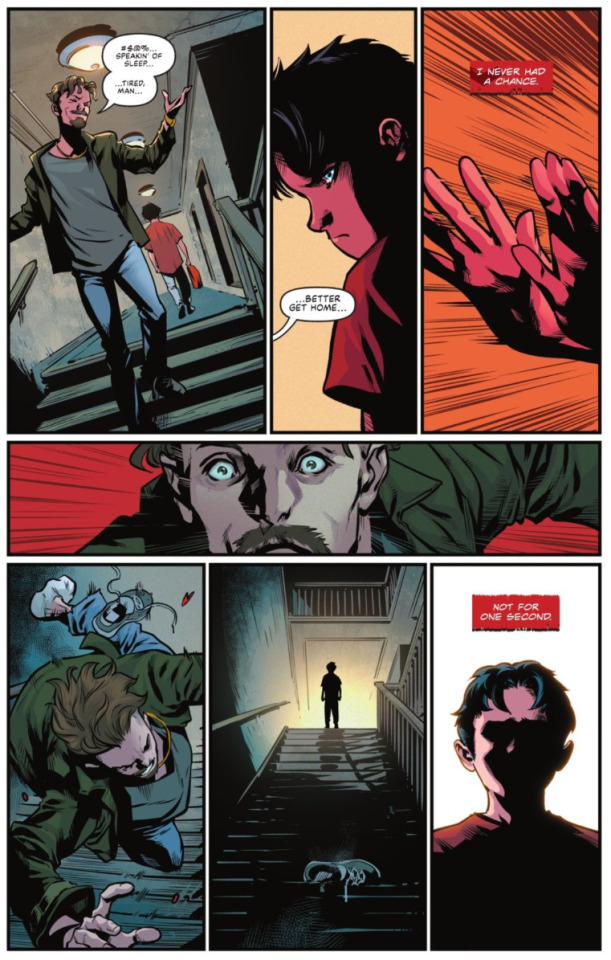
Starlin already did this story with The Diplomat’s Son in 1988 and he did it infinitely better. AND that’s still technically canon. So now I’m supposed to believe that Jason lost his cool bad enough to kill two douche bags before his sweet 16? Like it’s totally normal for abused kids raised in poverty, who’ve led hard and heartbreaking lives to just... haul off and kill people? That’s bullshit, and when taken with the Jason in the third issue, who is little more than an idiot thug, this story is really doubling down on some fucked up stereotypes.
Which brings us to the most recent issue. I went into this installment with very low expectations. I thought this story was going to be about Jason, through this experience with Tyler, a young boy with a similar background to Jason's, coming to the realization that Bruce's way is the best way and that Bruce did his best by Jason.
That would be annoying (in no small part because it takes increasingly absurd levels of plot armor to keep Bruce's no kill rule relevant, let alone irrefutably right). But I can probably live with that, if only because maybe if Jason officially falls back into line with the Bats crusade, maybe I'll get stories that treat him with respect, stories that don't relegate him to comic relief, dumb brute, or a background body with no lines in a story about the Joker burning Gotham (like Jason would just fucking stand there quietly for that).
And that may still be where the story is going, Jason realizing Bruce is right.
But holy shit do I not have the right words to describe how fucking insulting and gross issue three is.
From start to finish--including the flashback--Jason is written as cruel and fucking stupid. Like straight up dumb.
The entire issue is Bruce explaining the fucking basics to Jason like it's his first day. And Jason flies off the fucking handle and terrorizes a doctor he knows isn't a part of making the Cheerdrops, beats the shit out of some random addicts, and finally, when he can't accomplish anything on his own because he's a dumb brute he calls Barbara for help and rushes in with no information where he's promptly incapacitated and must now wait to be rescued by Batman.
This panel is the least of the issues sins but I can’t screenshot the entire story but it’s representative of the tone for the whole issue (and retroactively tainted the prior two issues).
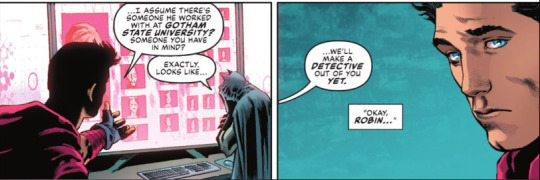
This is beyond insulting. The only conclusions Jason comes to in this issue are the ones Bruce leads him to by talking to him like he can’t make the simplest connections. And like... in this story Jason can’t make the simplest connections.
This (and the Jason throughout the entirety of this issue) is a far cry from the Jason we fell in love with in Under the Red Hood, who was competent and strategic and intelligent enough to seize control of Gotham’s underworld from Black Mask (who’s no fucking slouch, he’s the first and only person to unify organized crime in Gotham) AND elude and manipulate Bruce until the time and place of his choosing.
This is a far cry from even the Red Hood and the Outlaws Jason who is competent enough to fight the League of Shadows and Ra’s al Ghul (among very dangerous and skilled others) and smart enough to create antidotes for mind control nanotech viruses.
As he should be, by the way. Jason Todd is one of the best, most comprehensively trained fighters in DC’s stable of non powered vigilantes. He’s not irrational or hot headed. He’s pragmatic, tactically minded, and patient. He’s a detective. Right now. Has been since he was 12. Bruce doesn’t have to make him one because he already is.
Jason is not a stupid thug who uses his fists because his brain doesn’t work. And I can’t tell you how so very exhausted I am by this narrative.
This is actually the most egregious example of Jason’s skills and intelligence being not just undermined but dismissed entirely. Even Morrison’s Jason had some degree of competency.
The one, single redeeming factor of this story is the art. It’s beautiful. And Marcus To is a godsend he seems to be one of only a couple of artists who remember that Jason was a child when he was Robin and I’m literally only buying this book because of him.
Anyway, I’m sorry. I didn’t want that to come out so... um... passionately lol. I’m just very very tired. My intention with this isn’t to ruin it for you, if you like it, that’s fine.
But this issue shot this story to the top of my "Vehemently Despise” list. 1) Batman: Urban Legends (Cheer), 2) Battle for the Cowl/Morrison’s Batman and Robin, 3) Batman The Adventure Continues.
I hope the next issues somehow salvage this dumpster fire. But I’m not expecting it.
(Damnit. That sounded harsh again. To reiterate, I’m not trying to judge anyone who enjoys it, I just personally hate it and you asked me why lol 😅)
#Batman#red hood#batman: urban legends#nice art#shit story#or at least shit characterization#jason todd deserves better#this response got long and I didn't edit it#please forgive any errors#and/or unclear spots#spoilers
323 notes
·
View notes
Text
The narrative is not saying Hawks should feel guilty for his parents not wanting a relationship with him.
A concern that started back in 299 but really came to light in 303 is that the story may be trying to infer Hawks should feel bad for not pursuing a relationship with his parents. I completely understand where this concern comes from, but I also don't think that's what's happening here; and once again, I have the perfect disaster that is the Todoroki family to help me explain it.
Horikoshi's writing has been praised for the Todoroki plotline in particular for its portrayals of abuse, neglect, trauma, and broken family dynamics - and in particular how each member of the family has a different response to the traumatic events in their history. May I posit the idea that Hawks and his family is just an extension of that same concept?
While the Todoroki Family is able on some level to put itself back together, even if not completely, and move on in a positive direction. The Takami family is one that didn't mend, didn't heal, will never come back together.
Where Enji, even if decades later, is able to face what his self-centered behavior has done to his family; Thief Takami met the end of his relevance to the story as he tried to run away for good.
Rei owns her responsibility for the nightmare of the household and the scars she inflicted on her children without hesitation - giving validation to the feelings of her children and credit to them for being the ones who allow her to remain in their lives; Tomie was never able to own up to her actions and how she abandoned her son - even refusing to look him in the eye and literally ran away rather than face anything he might have to say about the way she treated him and how she was absent.
Each of the Todoroki children get to choose their response to a parent who's repentant of their behavior and allows them to be in control of the relationship moving forward - Dabi seeks to hurt them back, Fuyumi seeks to forgive and forget, Natsuo wants nothing to do with his father and put the past behind him, and Shouto won't let his father forget what he's done but will let him start over and prove himself with time. Hawks doesn't get parents that want a relationship with him, and he just has to accept that he won't ever get that healthy family dynamic from them, even if he wanted it, and move on with his life.
Natsuo is the important linchpin in this reasoning for me, because if there's one person who is single-handedly proving Endeavor's redemption is about atonement and not forgiveness - it's Natsuo.
Not every panel and stylistic imagery choice in the manga is meant to be taken as objective reality. We saw this in the confrontation between Hawks and Twice. The scary, shadowy way that Hawks was drawn was not objective reality but the way Twice was seeing him.
Some imagery and themes surrounding Natuso and Endeavor have been consistent, no matter who's perspective we're seeing.
In order, these depictions of Endeavor's abuse are from Rei's perspective, the entire Family's perspective, and finally his own as he recounts what he did. Absolutely nothing about what he did is meant to be taken as subjective. Horikoshi will not let us get away with thinking what he did was anything less that the horror that is was.
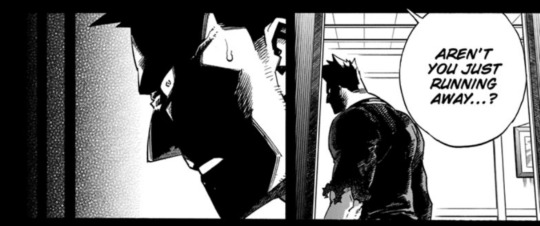

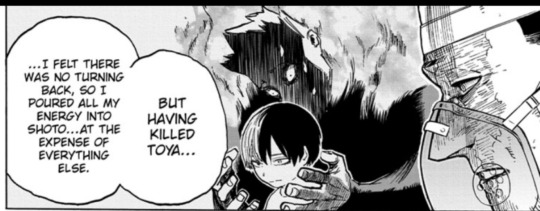
Which is why as everyone recounts their memories in that hospital room in chapter 302, Natsuo's is the only one not accompanied by supplemental imagery when even Fuyumi has some in her panel. Natsuo's statement doesn't need expounding; he's just right.

And his feelings have been acknowledged and validated in being that the only reason Natsuo even comes to these family meetings is to support his family. His father is the bad guy - the villain - in his story, but he's willing to acknowledge that he isn't the bad guy in everyone's story. For this he's praised as being selfless and kind - not to Endeavor, but to his loved ones. This happens not once:
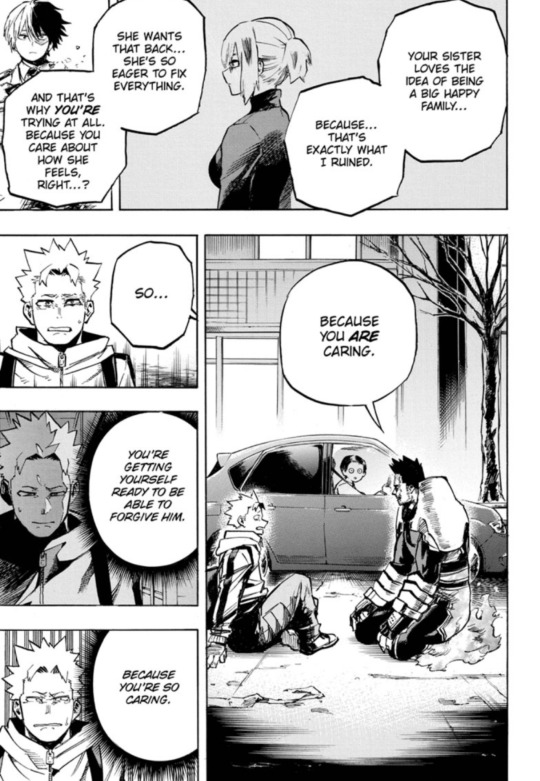

But twice! Natsuo is acknowledged in the narrative as having major objections to having anything to do with his old man, but is also acknowledged that in choosing enduring it even in the face of the anger and distress it causes him makes him selfless and caring of his his loved ones who have chosen to stand by Endeavor - and even in this second instance it's acknowledged that he's supporting his dad only because people need the Hero Endeavor and his family behind him.
While the issue was still just their family, Natsuo's boundaries were respected by Endeavor, the rest of the family, and ultimately the narrative; and these boundaries will once again be reinforced when the situation blows over.

So riddle me this: if Natsuo is allowed to hate and abandon his father who is repentant and does want a relationship with him, I don't understand how the same story is turning around and condemning Hawks for simply letting them go when he acknowledges he didn't even get the same opportunity?

I really think the order of his thoughts matter.
"I didn't get to confront my parents. They're gone."
"So I left them there behind me and moved on."
More than likely Hawks has some choice words for his genetic donors if he got the chance considering he praises Shouto for taking steps that are tremendously difficult for a child in those circumstances to do - especially towards his father who Hawks now knows is guilty of some major sins of which his family has zero obligation to forgive. He recognizes that Shouto's parents placed the power to redeem or destroy their relationships with him into his hands, and instead of cutting them off as was his right, he reached back out and met them halfway.
Yeah, man, that makes you a pretty cool dude.
In conclusion: I think Hawks is just another example of how this kind of family dynamic could go wrong and how sometimes the child just has accept what they can't control and move on, even if he wishes he could get closure. We can't always get that, and so in another way he's painted as being strong for doing that emotional heavy lifting alone without the promise of closure and not let it consume his life.
111 notes
·
View notes
Text
Continuing with my reread
And got to the point where they visit the Rufeng Sect.
But before I get to the chapters-specific stuff, I wanted to talk about something that discussion between @moransumbrella and @momoliee (about SQT and RJ) made me think about.
And it’s that in 2ha, one of the big narrative points is that it is understandable to want to survive/get revenge/protect yourself or others but no goal however understandable or noble in the abstract can justify systematically hurting innocents and when you cross that line and keep crossing it, you become a monster. Maybe a tragic one or understandable one, but there is none of that “oh you poor thing, go on” attitude.
Is there any doubt that Shimei is fully justified in wanting to save his people from the horrors they are subjected to in the cultivation world? No, not at all. But leaving aside the irony of his plan wrecking both the one person we’ve seen who never ever went along with that behavior (CWN) and the person who IS part of those people and a special one at that (Moran), those two also being some of the few people who treated him so well, nobody in their right mind would think he’s justified to literally destroy a Universe he is in and then start working on the Universe of the main story. He is a monster pure and simple and nothing can justify what he does. Or, on a smaller scale take someone like Rong Jiu (mainly 0.5), Song QT, Nangong Xu or even that family in Butterfly Town. They all have reasons for doing the horrible things they do - desperation to get out of awful life (RJ, SQT), rightly wanting vengeance for having his place stolen (NX), or even understandable desire to get ahead as a family (Butterfly Town folks.) Shimei’s sister - same - she does the monstrous things she does because she loves her brother. Meatbun gets that very few people genuinely see themselves as villains - even as mad, as gone, as compelled, as broken TXJ was, he still clung to his “I was justified to torture CWN 0.5 because he killed Shimei″ like a life raft. Even a person who was not in any way in possession of free will in his actions or even his thoughts, still felt he needed to operate on a “just world” theory.
BUT the thing is, it makes their actions justified in their own heads but Meatbun never makes the mistake of letting us forget that even monsters with valid reasons are monsters. There is no justification in the world that can make what Shimei did OK, there is no justification in the world that can make anything any of the bad actors do to innocents OK. It relates to huge things (Hua Binan literally destroying the Universe) and little ones (Rong Jiu in the Underworld betraying Moran and CWN.) Sympathy and justice are two separate concepts.
But the other thing I love is nothing is static either. Meatbun doesn’t shie from calling a monster a monster but redemption is possible no matter what. We see this with Moran (until the twist, of course, that no redemption is necessary (sort of - about this more word vomit below) because he’s an even bigger victim than CWN), we see it with Shimei 2.0 - I will never warm up to Shimei for emotional reasons but there is zero question that he is working hard on his redemption at the end and is earning it. But the thing is - you have to possess moral consciousness to want to redeem yourself. That is what makes you salvageable. Moran possesses it, Shimei 2.0 possesses it (and I love the concept that no matter how high your sins, you CAN be redeemed. But that redemption doesn’t necessarily involve personal happiness or your victims forgiving you, it is basically hard work only for internal reward of the possibility of peace.) A lot of other monsters, large and small, do not.
OK, the thing about whether Moran needs redemption that I just mentioned. The quick and easy answer is “of course not.” He was probably the biggest victim of them all and none of the monstrous things he did were his fault or within his control. But I love that the answer is actually more complicated because it rings emotionally true. Moran finding out the truth near the end is wonderful and will allow him not to perpetually drown in guilt, but just as TXJ sliver doesn’t really fade into the rest of his souls, I don’t think the guilt will go away fully, not for a while. Because, aside from the concept of utter lack of volition combined with utter lack of knowledge that you actually lacked volition and deludedly thought this was all your ideas, being a whole other different trauma, the fact remains that Moran remembers feeling rage/hatred/bitter satisfaction in murder and rape and torture and burning the world. He remembers all the awful things he’s done to his most loved ones. And he clearly gloms onto “the flower brings out all your darkest/worst/most insane desires and makes them conscious thoughts” aspect of the curse - he tells CWN that the flower made real things he sometimes thought of and so it only worked because it was him and not someone better like CWN - and some of it is trying to comfort CWN and make him feel less guilty that Moran took on the flower so CWN’s won’t be forced to to - but some of it is his genuine belief. And that is what is so insidious about that curse - it twists normal stray thoughts and healthy interests into murder and insanity (compare TXJ’s obsession with CWN because Moran had such strong positive feelings about CWN before the spell, to his utter lack interest in e.g., Nangong Liu who he let run off when he took Rufeng because as long as the man didn’t fight him, he couldn’t care less what he did, because flower couldn’t turn indifference into something negative.) So I do think in addition to knowing on intellectual level about not being responsible not being equal to getting it on emotional level, Moran clearly feels responsibility because it was his emotions only out of whack and insanely perverted that the flower based its compulsions on. Moran became such a monster precisely because he has such strong loves and such strong emotions in general - strong love and desire to protect became strong hate and endless appetite for torture. The flower changes the nature of emotion and thoughts, not the level of intensity. If Shimei actually found someone who was genuinely utterly indifferent to most things (not CWN who feels so intensely; he conceals himself so much precisely because he feels SO much, cares SO much, he’d have been as much of a monster as Moran if he was the flower recepient), I am not sure he’d have been as successful. If the most someone is capable of is mild “eh,” it’s hard to turn it into a drive for world-destruction. So in a way, Taxian Jun was such a monster and so successful because Moran was so good and had such drive. Anyway, as most of my thoughts, this has gone into a random direction but the thing is, whether Moran is guilty of what TXJ did, the answer is not but not for Moran, and that’s one of the reasons I love him.
To get back to the chapters I am at, I hate Nangong Liu, one of the most despicable characters out there. Even TXJ, as messed up as he was, still hated not people who fought him fair and square or other honest villains, but people who’d kiss up only to stab you in the back, doing anything to get ahead and that is what head of Rufeng is. (There is a sentence to that extent when Moran 2.0 meets Nangong Liu - that who he hated most as TXJ was not Xue Meng or MHX but people like Nangong Liu. That loathing, like his obsession with CWN, is one of the few things consistent across any version of Moran and shows how much his “gratitude for good, straightforward is good” is embedded in him that even the flower couldn’t shove it out of him.) CWN’s comment that the reason Rufeng Sect is so rich because they charge God knows how much as opposed to Siseng Peak which charges very little and sometimes nothing, sums up the difference between the Upper and Lower cultivation realms. Rufeng is the wealthiest and most powerful and most respected but morally they are far beneath Siseng (there is a reason CWN is very gentle when he tells this to Xue ZY - CWN has about the truest and most moral heart in the series; there is a reason he stayed at Siseng, an “inferior” sect, even though everyone would love to have him. It’s because Xue ZY is righteous and he sees the wealth of Rufeng and wishes he could use it to give villages protection instead of decorating like Rufeng, because he’s that type of person.)
One of the biggest injustices to me is that Nangong Liu survives the book but Meatbun’s world is often like that. Being good does not mean a good ending, being bad does not mean proper punishment. The main OTP will make it through despite hell she puts them through, but for secondaries even those bets are off.
OK, this is getting War and Peace level long so I am going to stop.
42 notes
·
View notes
Text
Am I My Brother’s Keeper?: Nie Mingjue and Jiang Cheng
Or, how the two most virulent Wen-haters in the story tragically mirror each other in far more ways than just their issues with the Wens.
I’ve written about MDZS’s use of character trios as a narrative structure before (here and here). In this meta I’m going to talk about the main three and the Venerated Triad. I’ve also written before about how Lan Xichen and Jin Guangyao’s relationship (however you interpret it) parallels Lan Wangji and Wei Wuxian’s, with Lan Xichen as a strong Lan Wangji foil (fitting, as they are the “Twin Jades”), and Jin Guangyao as a strong Wei Wuxian foil (as Wei Wuxian himself acknowledges in the story’s final chapter). So let’s talk about the third member of these trios: Nie Mingjue and Jiang Cheng, who also closely foil each other... in particular, through their respective relationships with Jin Guangyao and Wei Wuxian.
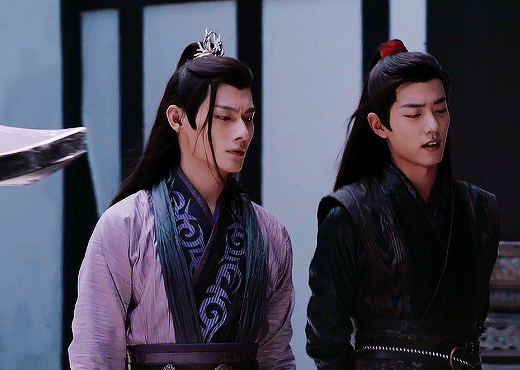
But wait, you say. Jin Guangyao killed Nie Mingjue, which parallels Jiang Cheng killing Wei Wuxian!
True. There are some parallels between Jiang Cheng and Jin Guangyao (such as JC killing WWX to avenge JYL, even though she wouldn’t have wanted that, and JGY doing it when NMJ hurts NHS, even though NHS adored NMJ), as well as between Chengxian and Xiyao, but this is not a meta about those specifically.
Nie Mingjue tried to kill Jin Guangyao in life (twice), and actually does do so in the end, and Jiang Cheng helped kill Wei Wuxian even if he did not do it directly. The reason both Nie Mingjue and Jiang Cheng were able to treat their brothers like this was because of their immense privilege, the privilege neither acknowledge until it is time to weaponize it. In those moments, both chose not to empathize but to see their brothers as an “other” instead of as someone they loved (and I do think both Nie Mingjue and Jiang Cheng loved Jin Guangyao and Wei Wuxian in a realistic, flawed way). In the otherizing of their brothers, both Nie Mingjue and Jiang Cheng put on robes displaying society’s flaws as blatantly as Sect Leader Yao does, but with a lot more humanity than the flat, static Sect Leader Yao. Thus, MXTX tells us we cannot even “other” society as a whole.
If this sounds like I’m hating on either character, I’m really not intending to. They’re great characters and I enjoy both of them (Jiang Cheng’s one of my very favorites), but they’re flawed, and in fact that’s the whole reason I like them. But I do admit this essay will be scathing to an extent; just know it doesn’t touch on my whole opinion of their characters, and isn’t meant to excuse Wei Wuxian (who had a savior complex) and Jin Guangyao (who sought society’s approval to his own doom); I’ve just previously excoriated those two.
I. Defining Justice as Trauma
Nie Mingjue and Jiang Cheng both lost their fathers to Wen Ruohan (as did the Lan brothers), and both vowed to wipe out the Wens as a result. However, both of them fail to think about the Wens as people, and wind up, well, becoming eerily similar to the worst Wens.
Jiang Cheng has lived through the pain of losing everything (status, family, home) and he not only refuses compassion for the two Wens who saved him so that he could fight to get those things back, but inflicts the same traumas on them. In fact, Jiang Cheng’s reaction to Wen Qing’s predicament post-Sunshot campaign is paralleled explicitly with Nie Mingjue’s:
Jiang Cheng’s brows were knitted. He rubbed the vein that throbbed at his temple and soundlessly took in a deep breath, “… I apologize to all of the Sect Leaders. Everyone, I’m afraid you don’t know that the Wen cultivator whom Wei WuXian wanted to save was called Wen Ning. We owe him and his sister Wen Qing gratitude for what happened during the Sunshot Campaign.”
Nie MingJue, “You owe them gratitude? Isn’t the QishanWen Sect the ones who caused the YunmengJiang Sect’s annihilation?”
...
Lan XiChen responded a moment later, “I have heard of Wen Qing’s name a few of times. I do not remember her having participated in any of the Sunshot Campaign’s crimes.”
Nie MingJue, “But she’s never stopped them either.”
Lan XiChen, “Wen Qing was one of Wen RuoHan’s most trusted people. How could she have stopped them?”
Nie MingJue spoke coldly, “If she responded with only silence and not opposition when the Wen Sect was causing mayhem, it’s the same as indifference. She shouldn’t have been so disillusioned as to hope that she could be treated with respect when the Wen Sect was doing evil and be unwilling to suffer the consequences and pay the price when the Wen Sect was wiped out.”
Lan XiChen knew that because of what happened to his father, Nie MingJue abhorred Wen-dogs more than anything, especially with how intolerable he was toward evil. Lan XiChen didn’t say anything else.
There’s a lot of irony in this. Wen Qing didn’t speak up because she wanted to protect her little brother--something Nie Mingjue should have been able to relate to, considering he sent Huaisang to safety in the Cloud Recesses during the war. Also, I mean, Nie Mingjue, you didn’t exactly rise up against Wen Ruohan until you knew you had the forces to win. He likely spent several years in begrudging deference to him, even sending Nie Huaisang along as tribute when Wen Chao demanded it. Jiang Cheng starts to do the right thing in this scene by speaking honestly about Wen Qing, but then Nie Mingjue reminds him of society and propriety, and Jiang Cheng backs down, crushed under society again. Both of them commit sins of omission, in that they stand back and allow society to belittle and vilify people.
The “sins of omission” is a motif that continues in both Nie Mingjue’s and Jiang Cheng’s arcs. For example, Jiang Cheng stood by to let Mianmian be brutally killed in the cave of the Xuanwu of Slaughter, and even stood by to let Lan Wangji and Jin Zixuan die too as they protected her. He goes on to blame Wei Wuxian for the deaths of his family because of Wei Wuxian saving them. Nie Mingjue keeps the truth about the saber spirit from Nie Huaisang, and additionally, the very same conversation about Wen Qing referenced above, Nie Mingjue is directly stated to know Jin Guangyao is lying to help his father, and he says nothing at all even though Wei Wuxian’s life hung in the balance. (It then karmically backfires on Jin Guangyao).
Jin GuangYao came to save the day, exclaiming, “Really? That day, Young Master Wei busted into Koi Tower with such force. He said too many things, one more shocking than the next. Perhaps he said a few things that were along those lines. I can’t remember them either.”
... As soon as he heard it, Nie MingJue knew that he was fibbing on purpose, frowning slightly.
...
One of the sect leaders added, “...Excuse my bluntness, but he’s the son of a servant. How could the son of a servant be so arrogant?”
With him having brought up the ‘son of a servant’, naturally there’d be some who connected it to the ‘son of a prostitute’ standing in the hall. Jin GuangYao clearly noticed the unkind stares.
While Nie Mingjue is quick to accuse Wen Qing for her inaction but languid with his own, this isn’t exactly unique. He also is quick to accuse Jin Guangyao of standing by as Jin Guangshan manipulates to acquit Xue Yang for his crimes against the Chang Clan. (I’m not defending Jin Guangshan or Jin Guangyao in this.) How dare they stand there and not argue for justice?
In spite of Nie MingJue being a junior to Jin GuangShan, he conducted himself in a strict manner and refused to tolerate Xue Yang no matter what. With an angry lecture, Jin GuangShan was left with no words and a great deal of embarrassment. Nie MingJue, as the irritable person he was, unsheathed his saber on the spot with the intention of killing Xue Yang. Even when his sworn younger brother LianFang-Zun, Jin GuangYao, attempted to ease the situation, he ordered him to leave. After a harsh scolding, Jin GuangYao hid behind Lan XiChen, not daring to say anything else. In the end, the LanlingJin Sect could only give in.
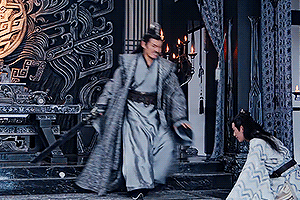
But, Nie Mingjue never offers a critique of Jin Guangshan when Jin Guangshan lied to Nie Mingjue’s face about Meng Yao. He discovered that Jin Guangyao’s stepmother is routinely beating him, and Nie Mingjue does nothing. Even if his hands were tied, if he really cared about doing the right thing, why didn’t he intervene somehow, some way, for his brother? If he really cared about holding people responsible for their actions, about making sure justice was served above everything else, why is it that the only person he consistently holds accountable is Jin Guangyao?
Could it be that, much like society, what Nie Mingjue was angry about was not injustice, but actually his hurting self? His hurt pride, his hurt child self still reeling from the cruel way Wen Ruohan betrayed his father and left him to die an agonizing death?
Likewise, Jiang Cheng knows, when he leads the siege at the Burial Mounds against the Wens, that no Wen there is dangerous. They are all elderly or children, not soldiers. He knows even that his sister died saving Wei Wuxian’s life, but chooses to ignore her wishes to satiate his own anger and the inner child inside of him still crying in loneliness. No one had ever chosen Jiang Cheng: his mother viewed him as a disappointment, and his father preferred Wei Wuxian, but Wei Wuxian promised to stick by Jiang Cheng no matter what. When Wei Wuxian breaks this promise, Jiang Cheng never gets over this, and carries out revenge on him for choosing actual justice over staying close to Jiang Cheng (looking back, this adds a symbolic irony to Jiang Cheng refusing to intervene and save Lan Wangji and Jin Zixuan in the cave: they are both the people who will be his siblings’ spouses).
But the sad reality is, it’s a false dichotomy. Wei Wuxian did not choose the Wens over Jiang Cheng. Jiang Cheng, like society, chose society and conformity over Wei Wuxian.
I’ve said it before, but while Jin Guangyao isn’t correct that the siege on the Burial Mounds is “all” Jiang Cheng’s fault, he’s not wrong when he makes this point:
“But what you have to understand is that, for what happened to Young Master Wei in the end, you are responsible too and in fact, you are very much so. Why did so many people crusade against the YiLing Patriarch? Why did they shout their support, no matter if they were involved or not? Why was he one-sidedly condemned by so many? Was it really their sense of justice? Of course not. A part of the reason is you.”
...
“… Back then, the LanlingJin Sect, the QingheNie Sect, and the GusuLan Sect had already finished fighting over the biggest share. The rest could only get some small shrimps. You, on the other hand, had just rebuilt Lotus Pier and behind you was the YiLing Patriarch, Wei WuXian, the danger of whom was immeasurable. Do you think the other sects would like to see a young sect leader who was so advantaged? Luckily, you didn’t seem to be on good terms with your shixiong, and since everyone thought there was an opportunity, of course they’d add fuels to your fire if they could. No matter what, to weaken the YunmengJiang Sect was to strengthen themselves. Sect Leader Jiang, if only your attitude towards your shixiong was just a bit better, showing everyone that your bond was too strong to be broken for them to have a chance, or if you exhibited just a bit more tolerance after what happened, things wouldn’t have become what they were. Oh, speaking of it, you were also a main force of the siege at Burial Mound…”
II. Privilege
The main villain of all of MXTX’s novels is privilege (I’ve touched on this here and here and here). Unfortunately, both Jiang Cheng and Nie Mingjue are heavily infected with it, and it’s partially why they treat others as they do.
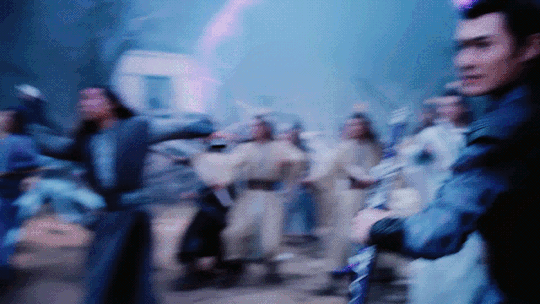
Jiang Cheng speaks negatively of Mianmian in chapter 56, noting that she’s probably just the daughter of a servant. When Wei Wuxian challenges this by pointing out he is also the son of a servant, Jiang Cheng expresses that Wei Wuxian is somehow different (and to be fair, he is indeed treated with more respect because of Jiang Fengmian’s background with Wei Wuxian’s mother), but the implication is also classist. Ironically, again, when Jiang Cheng will not speak up for Wei Wuxian or Wen Qing during that same conversation referenced earlier, Mianmian does; though Nie Mingjue expresses admiration of her for doing so, he does not do the same.
Additionally, Jiang Cheng says the following about Jin Guangyao:
Wei WuXian, “Isn’t Jin GuangYao here now? Jin GuangYao seems so much better than him.”
Jiang Cheng... “So what, if he’s better? No matter how much better he is, no matter how clever, he could only be a servant who greets the guests. That’s all there is to his life. He can’t compare with Jin ZiXuan.”
This pretty much sums up how society treats Jin Guangyao, and Jiang Cheng doesn’t think to question it. Wei Wuxian, on the other hand, points to Jin Guangyao’s character, which at that point looked decent (even if... later... sigh). Additionally, it’s hard not to see this as a commentary on how people think Wei Wuxian should be acting. Even though Jiang Cheng is, er, wrong about how far Jin Guangyao can rise, he contrasts with Jin Guangyao in how Jin Guangyao builds the lookout towers to provide justice for the common people, while Jiang Cheng encourages Jin Ling’s initially snobbish behavior (leaving common people in traps).
Not only that, but Jiang Cheng routinely commits atrocities under his protection as a sect leader. He’s described as having whipped the flesh off the backs of people accused of demonic cultivation, and supposedly no one arrested for that survived his tortures (ironically, Wen Ruohan is also known for torture). As someone pointed out once, the people who would turn to demonic cultivation are likely those unable to form golden cores (Wei Wuxian), or those taken in as disciples too late/too untalented to do so (Mo Xuanyu); Xue Yang was also taken in late as a disciple, but is noted to be unusually talented. The interesting thing is that all three of these people are from impoverished, humble origins. Thus it’s very likely the people Jiang Cheng was arresting and torturing to death were not wealthy cultivators (not to mention other sects would complain if so), but common folk.
As for Nie Mingjue, Jin Guangyao goes further than Wei Wuxian and directly attempts to challenge Nie Mingjue to acknowledge his privilege with brutal honesty on his own part, only for it to go... poorly.
Nie MingJue, “There’s no need for explanations. Come back to me with Xue Yang’s head in your hand.”
Jin GuangYao still wanted to speak, but Nie MingJue had already lost all patience, “Meng Yao, don’t speak such pretentious words in front of me. Your whole thing stopped working on me since a long time ago!”
Within a second, a few degrees of unease flashed over Jin GuangYao’s face, as though someone with an unmentionable illness was suddenly exposed in the public. There was nowhere for him to hide.
He spoke, “My whole thing? Which whole thing? Brother, you’ve always yelled at me for calculating people and being too dishonorable. You say that you’re a proud, righteous person, that you aren’t afraid of anything, that propen men shouldn’t need to play with schemes. That’s fine. Your background is noble and your cultivation is high. But what about me? Am I the same as you? First, my cultivation isn’t as firm as yours. Ever since I was born, has anyone taught me? And second, I have no prominent background. Do you think that I’m in a steady position, here at the LanlingJin Sect? Do you think that I can rise into power the moment Jin ZiXuan dies? Jin GuangShan would rather bring another illegitimate child back than want me to succeed him! You think that I should be afraid of nothing? Well I’m afraid of everything, even other people! He whose stomach is full believes not him who is starving.”
Nie MingJue replied coldly, “In the end, all you mean is that you don’t want to kill Xue Yang, that you don’t want your position at the LanlingJin Sect to waver.”
Jin GuangYao, “Of course I don’t!”
He looked up, unknown fires dancing within his eyes, “But, Brother, I have always wanted to ask you something—the lives under your hands are in any regard more than those under mine, so why is it that I only killed a few cultivators out of desperation and you keep on bringing it up, even until now?”
Nie MingJue was so enraged that he began to laugh, “Good! I’ll give you my answer. Countless souls who have fallen under my saber, but I’ve never killed out of my own desires, much less to climb up the ladder!”
Jin GuangYao, “Brother, I understand what you mean. Are you saying that all of the people you killed deserved their deaths?”
With courage gathered from nowhere, he laughed and walked a few steps closer to Nie MingJue. His voice raised as well, asking in an almost aggressive manner, “Then, may I ask, just how do you decide if someone deserves death? Are your standards absolutely correct? If I kill one but save hundreds, would the good outweigh the bad, or would I still deserve death? To do great things, sacrifices must happen.”
Nie MingJue, “Then why don’t you sacrifice yourself? Are you any nobler than them? Are you any different from them?”
Jin GuangYao stared at him. A moment later, as though he had finally either decided on something or given up on something, he replied calmly, “Yes.”
He looked up. In his expression were some of pride, some of calmness, and some of a faint insanity, “I and they, of course we are different!”
Nie MingJue was infuriated by his words and his expression.
He raised his foot. Yet, Jin GuangYao neither avoided nor took defense. The kick landed right on him, and again he rolled like a pebble down Carp Tower.
Nie Mingjue, here, is being compared to two other people: the man who kicked Meng Yao down the stairs at a brothel as the man dragged Meng Shi outside naked to humiliate her, and with Jin Guangshan--the very person Nie Mingjue’s enraged with--by doing the same thing: kicking someone he views as lower than himself down the stairs. Instead of addressing the actual problem (Jin Guangshan), he finds a scapegoat. It’s not a good look. All three of these instances are linked with society standing by and allowing it to happen, with a few exceptions: Sisi intervenes with Meng Shi, and Lan Xichen intervenes to stop Nie Mingjue from killing Jin Guangyao.
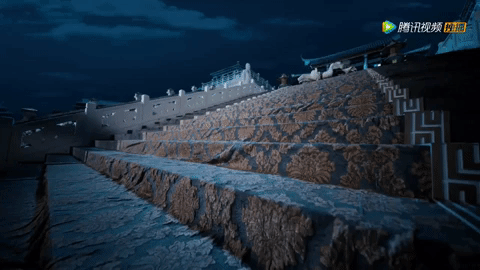
Nie Mingjue never had to kill to climb the ladder within his sect. He did have to kill to climb the ladder in the cultivational world--and he actually did so, through killing the Wens. Yes, I know Nie Mingjue killed the Wens because he wanted revenge for his father and protection for himself and his brother, but the problem is... that’s exactly what motivated Jin Guangyao: protection. Jin Guangyao just had more to fear than Nie Mingjue.
The irony of the above scene that Jin Guangyao knows killing is wrong, but it’s how to survive in this world, so he does it anyways. Nie Mingjue thinks the problem of someone thinking they are entitled to kill can be solved by killing the one who says such a thing, because he’s entitled to kill someone who thinks they’re entitled to kill-- You get the point.
That sad thing is that being shoved down the stairs doesn’t even end that scene. Nie Mingjue directly attempts to murder Jin Guangyao:
Just as Nie MingJue unsheathed his saber, Lan XiChen happened to leave the palace to see what was going on, concerned after having waited for long. Seeing the situation before him, he unsheathed Shuoyue as well, “What happened, this time?”
...
Nie MingJue, “... I know what I’m doing. He’s beyond hope. If these keeps on going, he’ll do the world harm for sure. The earlier he’s killed, the earlier we can relax!”
This does not at all justifying Jin Guangyao’s subsequent murder of him, but again, Jin Guangyao kills to protect himself, and he’s not without cause for fear of his life (this does not justify, because neither is Nie Mingjue entirely without cause, but people have gotta acknowledge that reality).
III. Reasons to Kill
I often see Nie Mingjue held up as someone who judged people based on their actions and was countercultural in that he was willing to stand up to Jin Guangshan when Jin Guangshan wanted to acquit Xue Yang of slaughtering the Chang Clan. However, this is decidedly not the case. Nie Mingjue is very much acting within society’s principals here (calling someone else out is hardly unique or noble: see, Su She, Jin Zixun, etc.) Nie Mingjue stood up to Jin Guangshan then because the crime was so severe he knew he might actually be able to win; otherwise, he let Jin Guangshan do as he wished.
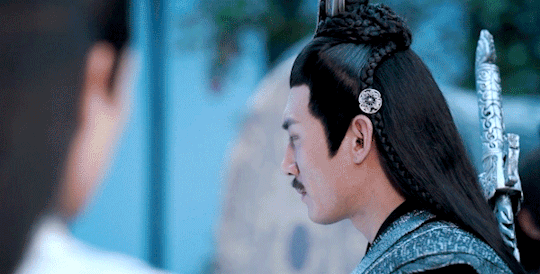
To illustrate this, I’ll share the piping hot tea a commentator spilled on one of my fics recently, because she says it perfectly:
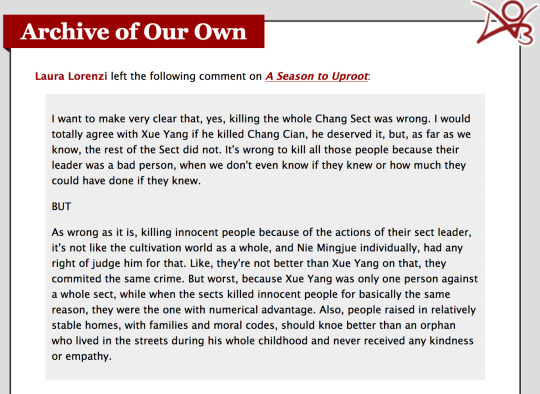
She isn’t wrong. You can hold Xue Yang--and Jin Guangyao and Wei Wuxian, for that matter--responsible for their actions and also point out the hypocrisy of a society that holds to ideals of how people behave, yet is constantly making exceptions for themselves. Nie Mingjue does just this by demanding Xue Yang’s head as a price for not killing his own sworn brother. Jiang Cheng does just this by murdering the older, helpless Wens at the Burial Mounds, and turning his back on the Wens who saved Jiang Cheng’s own life.
Why do these characters kill?
Nie Mingjue and Jiang Cheng killed out of revenge to honor their families and save themselves.
Jin Guangyao killed to get his father to acknowledge him as his son, and then in revenge when he realized he never would, and to save himself.
Wei Wuxian killed out of revenge and then out of despair--really, revenge against the whole cultivational world that had set him up for failure no matter what he did.
Xue Yang killed out of revenge for his little finger.
What do all of these have in common? They reveal what each person prized.
Jiang Cheng and Nie Mingjue prized the honor of their culture and of society.
Wei Wuxian prized his loved ones.
Jin Guangyao prized himself as his father’s son, a sort of combination of JC/NMJ’s status love and WWX’s wanting to be loved.
Xue Yang prized his body.
Xue Yang seems condemnable on paper, but let’s look at this a little deeper: what else did Xue Yang have? Nie Mingjue inherited a sect and had his beloved little brother, men who would die for him, people who admired him. Wei Wuxian had his loved ones, and then they were gone. Jin Guangyao had his dead mother’s wish for him to be approved for by society, and a famous father. What exactly did Xue Yang have besides his own body? He didn’t have parents, as far as we know. What else was he to value? Why is Nie Mingjue venerated, and Xue Yang condemned? Why is Jiang Cheng allowed to torture the poor under him for so many years, just because they reminded him of his brother, and Xue Yang hunted down?
The only answer is privilege. It’s privilege that allows Nie Mingjue and Jiang Cheng to decide when and how they want to enforce justice, and if they do at all. It’s privilege that they had families to avenge. It’s privilege that enables them to commit atrocities and get second, third, fourth chances. It’s privilege of his birthright than enables Jiang Cheng to never once die in the novel (Nie Mingjue not so much). But when Nie Mingjue dies, he seeks revenge on his murderer, not justice. He kills countless others in his quest to kill Jin Guangyao, people who had nothing to do with his death, and he could have killed his own brother. Even when he succeeds he ends up battling Jin Guangyao in a coffin sealed for a hundred years--hardly a victory.
So since we’ve brought him up, let’s talk Xue Yang and the Yi City trio now. The “judgy” member of the Yi City Trio is decidedly not privileged (A-Qing, as @thisworldgodonlyknows wrote about her, foils Nie Huaisang, but also she foils Nie Mingjue), and her character reveals these precise flaws in Nie Mingjue and Jiang Cheng. She is a beggar girl and a thief, but she seeks justice for Xiao Xingchen and Song Lan out of nothing more than love. She herself does not kill, and frankly I’d say she is the moral backbone of the series more than any other character (along with perhaps Mianmian). She was never a part of society, after all.

A-Qing dies young, alone by a river, mutilated. She has no privilege, but her spirit survives as a ghost solely because of her desire to ensure justice for Xiao Xingchen and for Song Lan. Her condemnation of Xue Yang is at first admittedly selfish--she was jealous--but then honestly understandable and easier to swallow, since she came from a similar background. But because of this, and because A-Qing is willing to empathize, she ends up understood and her wishes fulfilled. In the end, Song Lan leaves with the remains of her soul, determined to heal both her and Xiao Xingchen.
As I wrote here, A-Qing is also faced with a dark version of herself in Xue Yang. Similarly, Jiang Cheng is faced with a dark version of himself in both Su She (jealous of Lan Wangji, jealous of Wei Wuxian; he calls out their arrogance) and in Jin Guangyao in the temple, and only then is he able to move forward and grow. Nie Mingjue, unfortunately, did not recognize the dark version of himself in Jin Guangyao, and ends up trapped with him.
#mdzs#mdzs meta#mo dao su zhi#the untamed#cql meta#cql#chen qing ling#nie mingjue#jiang cheng#jiang wanyin#chifeng-zun#jin guangyao#wei wuxian#a-qing#xue yang#xue chengmei#wei ying#meng yao#mianmian#luo qingyang#song lan#xiao xingchen#jin guangshan
180 notes
·
View notes
Text
Playing the blame game, and other pointless endeavours
A reflection on BNHA Chapter 291
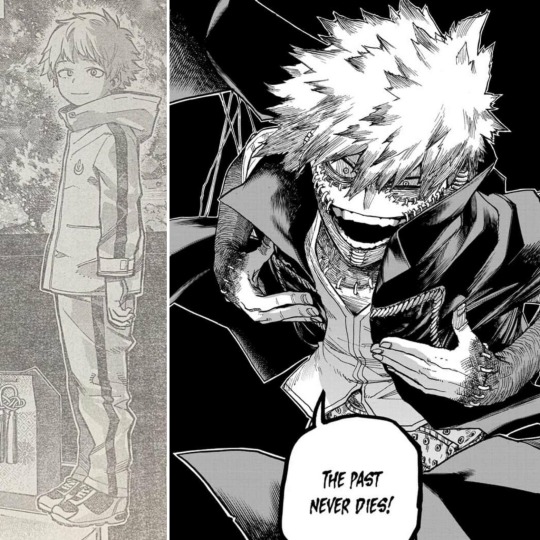
Before and after: or, How to violently radicalise an abuse victim in five easy steps
I think a lot of the people throwing blame around or trying to declare that one character or another is the One True Villain™ or the One True Victim™ need to stop seeing personal responsibility as a zero sum game, because it really isn't.
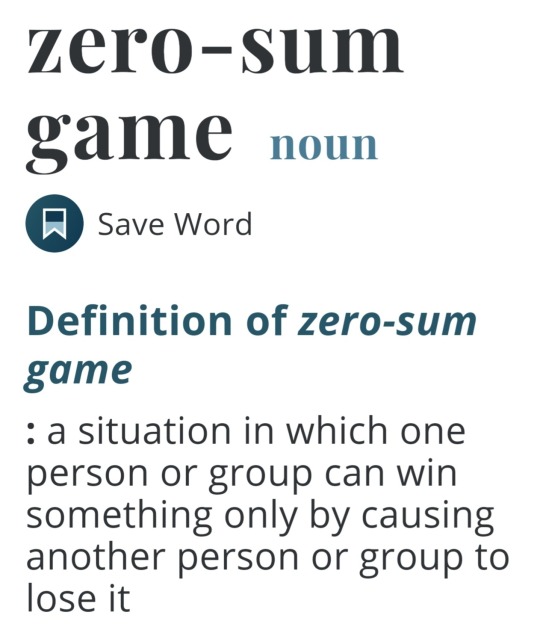
Arguing about whether Dabi and Endevour should each have 50% of the blame or if it's more of a 60/40 or 70/30 split (in either direction) is pointless. Endeavour is 100% responsible for his abuse of his family and general failings as a human being, and Dabi is 100% responsible for the lives he's taken and people he's hurt in retaliation because of it.
Sure these two things are absolutely related in that good ol' cause-and-effect sense, much like how an earthquake at sea will cause a tsunami. And much like them neither happened in a vacuum, the surrounding environmental conditions needed to be just right for a perfect storm of this magnitude to occur. It just so happens that in this case both the earthquake (Endeavour) and the tsunami (Dabi) are not faceless forces of nature, but human beings with superpowers who chose to take action based on their deep-set mental and emotional issues at everyone else's expense, either because they think their needs are more important, they think the price paid is worth being the means to the end or (most likely) a combination of the two.
Please note, I don't say this to excuse or condemn either character, the readers who are taking sides, or even Horikoshi's writing. It's pretty well established by now that one of the biggest themes in BNHA is that there is no perfect black and white when it comes to people and society and morality, and just about all the conflict is driven by just how badly their entire system (which is built and determined to die on that hill) messes it up for absolutely everyone on all sides.
Saying Dabi is a Bad Victim while Shouto is a Good Victim is just as pointless, because you're missing that the real villain is their broken society, of which everyone is a victim, even Endeavour.
Again, Endeavour was the one to abuse his family and he gets no passes for that so don't even try to argue that's what I'm saying, but he didn't wake up one day and just decide to do it. If Chapter 291 has done anything it's shown how escalation is nine tenths of the law in cases like this. He was already an asshole narcissist with a raging inferiority complex, we've heard from his own POV in an earlier chapter that he purposefully chose Rei to have kids with to eugenics a solution to his problem, he was never an upstanding guy.
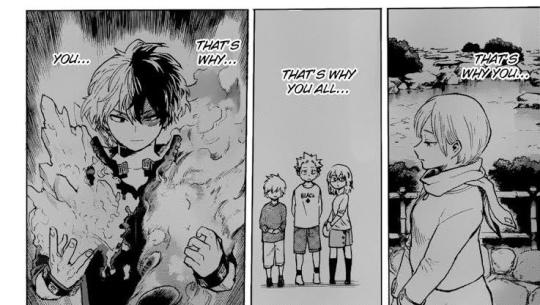
While we don't see Endeavour's own upbringing there's a reason he's been such a strong narrative parallel with Bakugou, so we can make an educated guess from what we've seen of his what it must have been like having a powerful Quirk and ambitions being fed by the people around him, and the way Bakugou has clashed with characters like Deku and Shouto when he was confronted with the reality that he wasn't going to get Number One effortlessly, we can guess how well he took realising he was always going to be Number 2.
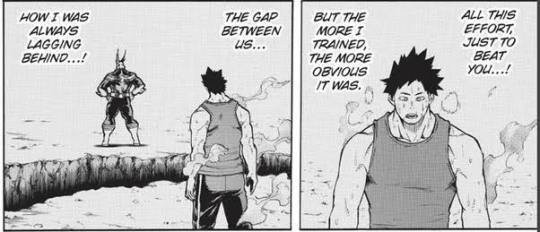
Pictured: the hero equivalent of always the bridesmaid, never the bride.
At least with Bakugou's rivals they're his own age and acknowledge him as a rival, All Might is at least a decade older than Endeavour and he's always been a loner who didn't get to know his colleagues that well. As readers we know All Might keeps his distance because he's kinda awkward socially, and because between the threat of All For One and maintaining the flawless image of the Symbol of Peace he wasn't ever able to let his guard down or it might risk people's safety. But just like Bakugou assuming Deku was looking down on him, from Endeavour's perspective it probably looked like All Might was looking down on Endeavour too.
Again, not excusing Endeavour. He's an asshole and needs to be held accountable for his actions. But just like Bakugou he didn't spring fully formed from the womb as an asshole, sure he had all the ingredients for it but their society is what decided it was a good idea to put the lime in the coconut and mix it all up, just like he's the one who broke Touya which ultimately led to the creation of Dabi.
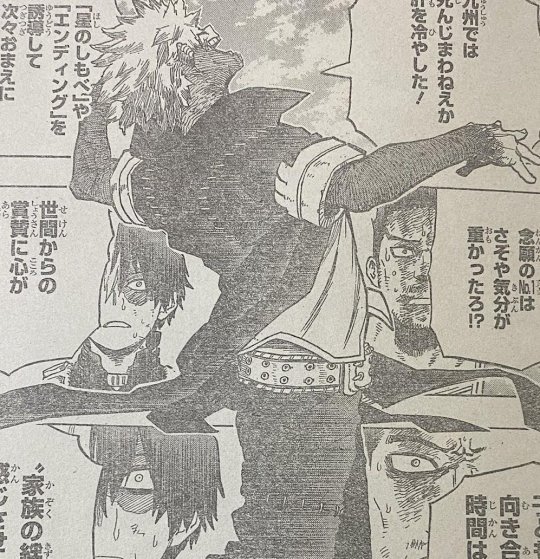
Which brings us back to Dabi not just calling out his abusive dad but making a spectacle of it, and while again, yes, he's done a lot of murder and that's not okay either, he is absolutely justified in this. Especially because the part of his reasoning for his actions which isn't just maniacal laughter (also totally valid) is that he's correctly identified, much like Shigaraki, that while specific individuals have hurt them and must pay for it, that the overarching problem is hero society itself.
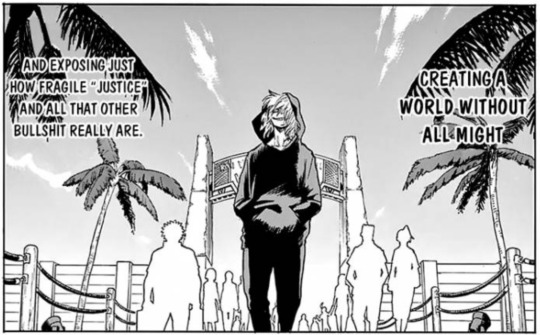
Shigaraki attacked All Might at first because Sensei said so, but later on because he was the symbol of everything he felt wrong with society, everything he's done has been to attack the pillars of the hero system like All Might and UA. Dabi attacked Endeavour, his abuser, but not just physically attacking him as a man and a father, but by attacking his reputation as the Number One Hero and the new pillar of society.
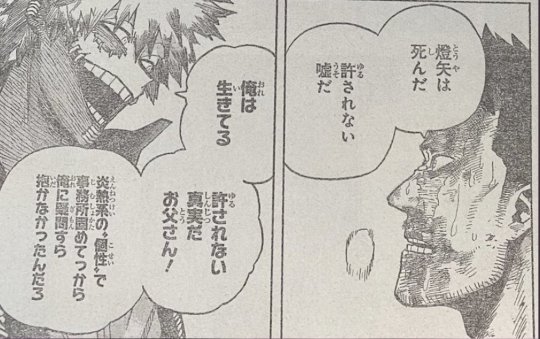
Pictured: an asshole who's realising that no matter how badly you think you done fucked up, another asshole can always come along and point out just how much worse it actually was than you thought.
Endeavour's sin was always acting as a hero first and a father second, if ever, and even then it was usually still to further his own ego and ambitions, which was tied so tightly to his role as a hero that Endeavour pretty much didn't exist outside of that. So Touya with his healthy sense of dramatic irony is naturally retaliating by treating him as a hero first and a father second, if ever, because that's the standard of behaviour that Endeavour himself set. Before discarding him for the new model he made it clear he wanted his son to be powerful, aggressive, independent, and to take down the Number One Hero without regard for anything else, and that's exactly what Dabi is doing. He's giving Endeavour exactly what he wished for and is making him choke on it.
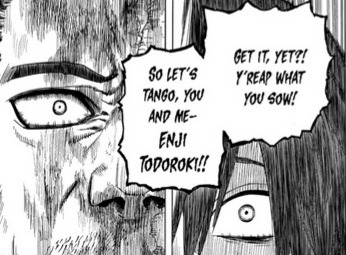
Just like he said, Touya's making sure Endeavour reaps exactly what he sowed because it proves his point, that if he hadn't been such a violent, toxic narcissist none of this would be happening. His desire to call out his abuser is both personal and justified (regardless of how he's going about it), and it shouldn't be condemned because it has nothing to do with his family. His family, who he was the scapegoat of and who he hasn't seen in probably around a decade, and who are still keeping silent about the abuse even though as far as they know it killed him. I'm not saying he hates the rest of his family like he hates Endeavour (though it probably comes closest with Shouto, there's a lot to unpack there) but it would be a very complicated web of love and grief and resentment and guilt that he'd need a weapons-grade therapist to unravel, which he's clearly never gotten considering this is how he's dealing with the trauma.
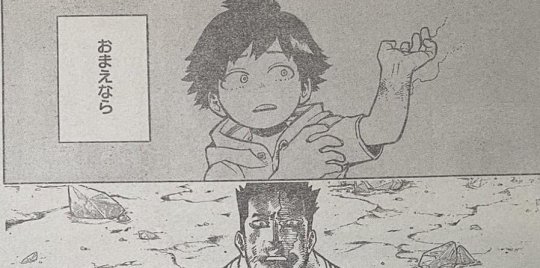
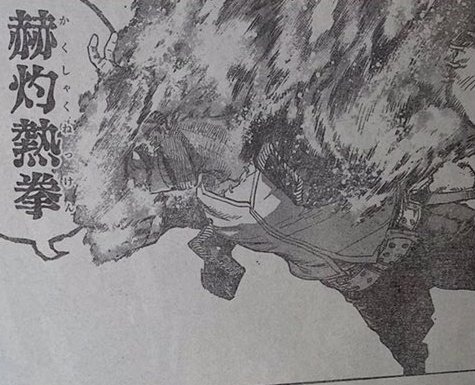
tl;dr Touya is a victim just like Shouto, and all the awful things he's done as Dabi don't detract from that, just as his victimhood doesn't excuse his actions either.
In conclusion, you don't have to reconcile or find explanations or excuses for Endeavour's abuse or how any of the other Todorokis have been dealing with it, especially Touya. They are all established facts and exist as objective truth regardless of our feelings on the matter. Instead of making moral judgement on the characters (or the readers who love them/hate them) maybe we all need to stop and think about it critically first, especially when chapters are still incoming and we don't even have the full story yet.
If we can all spend some quality time thinking objectively about all the sides of the story and what lessons we can learn from them, I can guarantee that little things like 'having compassion', 'listening to victims and survivors before they have to resort to domestic terrorism to be heard' and 'learning from the mistakes of the past' will get us all much better results than just sharpening some pitchforks, no matter who they're pointed at.
#bnha manga spoilers#bnha 290#bnha 291#dabi is todoroki touya#dabi#endeavour#shigaraki tomura#todoroki shouto#hero society#bnha meta#bnha analysis#bakugou katsuki#how to violently radicalize an abuse victim in five steps or less#i get that endeavour is a bastard and it's satisfying to dunk on him don't get me wrong#but there's enjoying the glorious schadenfreude and then there's ripping into other fans for not agreeing with you on exactly how to do it
32 notes
·
View notes
Note
so i was just thinking about star wars (as you do) and i realized... do the jedi (the survivors, that is) and in general the people ever actually all find out that the clones like... had no choice with order 66? i know a few jedi learn about it, but like, is it ever made public in the aftermath of the empire's defeat? 5 years after the massacre (while the empire still exists) cal kestis still believes the clones betrayed them. i'm assuming later the resistance learns some of it through rex? hmmm
I DON’T THINK THEY DO. Some of them learn the truth–Kanan seems to know, we know Ferren Barr knew, Rex and Gregor and Wolffe knew–but it seems like the galaxy in general didn’t.While it’s possible that it may eventually come to light–it would be very easy to slide in somewhere that Luke or Leia told people the truth, along the lines of that’s my headcanon for how everyone knew Palpatine was a Sith Lord by the time of the sequels–we have evidence that the wider galaxy definitely didn’t know.In Force Collector (set sometime close-ish to The Force Awakens), Karr Nuq Sin goes on a journey to discover the truth, which is difficult because most people don’t really even know the Jedi existed as anything significant (if they believe they existed at all) and Palpatine’s propaganda is still in full effect in many places, like when they go talk to the son of a clone who died during the war, he believes everything that Palpatine said about them:
Karr beamed. Leaving Merokia was already proving helpful. “Then if your dad was a clone trooper, you must know about the Jedi,” he prompted. Sconto’s expression fell. A blank look replaced his wide smile. Karr could see Maize was about to laugh, thinking she had found someone who shared her disbelief, until she noticed that all the good humor had gone out of the room. “Don’t talk to me about Jedi,” Sconto said, his cheery demeanor taking on a hardened tone. Karr chided himself for being so carefree about his quest. He forgot that the galaxy was a big place filled with big opinions, and many didn’t line up with his way of thinking. “I’m only asking as a history buff. I’m trying to find—” But the man cut him off. “My father was killed in those wars. Gone before I ever met him. And I don’t think I need to tell you who I hold responsible?” “The Jedi,” Arzee said enthusiastically, as if answering a bit of trivia. Karr winced, wishing he had programmed the droid to understand when a question was rhetorical. “War is an ugly thing,” Sconto continued. “Both sides think they’re right, and many lives are lost because of it. You can’t argue with fighting for what you believe in, but…” He paused as if he was tempering his anger again. “Betrayal,” he bellowed. “To turn on your fellow soldiers in arms, to cheat and strike like cowards! That’s just…” He searched for the worst word he could think of. “Disgraceful.” Then he spit on the ground as if the word wasn’t enough. Everyone was a little dumbstruck, but Maize couldn’t help breaking the silence. “The Jedi really existed?” “Absolutely,” he said with bitterness. “There were tons of them. But now they’re all gone. Of course, their legend has grown beyond their power by now. It happens that way sometimes, with heroes and villains alike. The truth is never as simple as it seems, in history books or anyplace else. The Jedi were a bunch of power-hungry renegades, a few of whom might have had some sort of abilities.” He waved a hand dismissively. “But at the end of the day, they were violent traitors, and the clones were right to put them down.”
He thinks that the Jedi were the ones to turn on the clones, that they were the traitors, and the clones chose to put them down. (Which is really painful because he’s actually describing much closer to what happened to the Jedi, that Palpatine forced the clones to cheat and strike at their backs like a coward, never even realizing that the clones weren’t given any choice in this.)Karr’s great-grandfather (a Jedi who left when he was a Padawan) also believed the propaganda about them and it was up to Karr to have to tell him the truth (who had discovered it through his psychometric abilities) and he was devastated to learn about it. That’s how deeply Palpatine’s propaganda was sold across the galaxy.
RZ-7 agreed, as gently as he could. “Sir, you took such noble measures to protect your family—and those measures were successful. But there was no need to turn your back on the Jedi. They never turned their back on the Republic. Or you.” Naq Med sank slowly to the floor. His grip on the can he used for a cup loosened, and it fell—spilling its contents across the rug. “But if that’s true, it was all for nothing. The Grand Inquisitor…?” he asked of anyone who might answer. Karr said, “A pawn of the Emperor. He turned on his own kind.” He paused. In the back of his head, an idea gelled. He spoke slowly, putting the words in order as they occurred to him. “The dark side won. The bad guys won so completely that when they were finished…there was nobody left to remember the good guys. No one to tell their side of the story. No one to collect their history and write it down—not once the Temple was gone. They say history is written by the winners, but it should be written by those who remember. Those who care about the facts.” The old man settled in a loose cross-legged position, his arms at his sides, his hands lying limply in his lap. “It was all a lie. My whole life, everything I lost…”
(It doesn’t help that the Empire erased anything that talked about the Jedi or the Force, so there was nothing to contradict their story.)Ultimately, there is hope, though. The Force seems to have chosen Karr specifically to show him what really happened, how the Jedi were betrayed and that they had never turned their backs on the Republic, that his role isn’t to become a Jedi himself, but to tell their story, the real story of their courage and bravery.And that seems to be reflected in Star Wars Propaganda where an author writes an entire book on how one conflict led into the next and while the Jedi are a small part of that book, as well as it doesn’t directly focus on Order 66 much or anything, it does show that the Jedi weren’t part of the corruption eating away at the Republic, that their problem was one of being really shit at PR more than anything.So someday the galaxy should know the truth. There’s hope out there! But it’s going to take awhile because the Empire was really, really thorough in scrubbing out the actual truth and replacing it with their own narrative.But glimmers exist. The crew in Alphabet Squadron discover a Jedi Temple and realize there may be more to them than the Empire said. Savi from Black Spire knew the Jedi were good and did much to protect the galaxy. In-universe stories from Myths & Fables survive. Poe Dameron speaks incredibly warmly about the Jedi and their traditions in the Poe Dameron comics. Maz Kanata knew them and she liked them.The truth may not be widespread, but it’s not dead in the GFFA and one day I’m sure the whole galaxy will know it again.But in the meantime, it’s heartbreaking that nobody knew for so very long. Nobody knew the Jedi bled and died for the Republic, for the clones, for the citizens. Nobody knew that the clones were victims of the system, were treated like disposable cannon fodder, that they weren’t given much of anything once the war was over, that the best they could hope for was, yeah, I guess you’re a person now, and if you want, you can work for the Empire to train Stormtroopers, with the few days you have left because of your rapid aging. Nobody knew what those chips in their heads did to them. Nobody knew the trauma and guilt and horror they had to live with having shot their Jedi in the backs. Nobody knew any of this for a long, long time and some details will probably always be lost to history.
154 notes
·
View notes
Text
A (maybe) 4-part meta on Good Omens: Part 1: Aziraphale’s Abuse and Trauma
SOOOOO I promised myself I wouldn’t get too obsessed with Good Omens but I’ve got some meta-thoughts.
So, it’s no secret that abuse is prevalent in Good Omens, but the methods of abuse are interesting ultimately working as a catalyst for how Crowley and Aziraphale interact with humans, Heaven, Hell, and each other.
Several of the characters we see in Good Omens are traumatized by the time we meet them, although some more than others. For example, Newt, for what little we see him is clearly ostracized by everyone around him and he shows signs of trauma via isolation. Until the end of the world, it’s heavily implied that he’s bullied, if not dismissed from the rest of the world due to his explosive tendencies with computers. He’s not shown to have healthy coping skills with the isolation, and although it is ultimately good he doesn’t get his job, and works with Shadwell, and meets Anathema, but he’s unable to express himself in a healthy way or handle his past. Similarly, due to the stress of saving the world, Anathema is traumatized by the expectations of her family, of being a “descendant” of Agnes Nutters.
But, both begin recovery journeys by beginning to assert their own needs and well-being. Newt begins forming real, relationships and coping with his loneliness by making friends and Anathema defies her family’s obligation by burning the letters. Overall, it’s a straightforward approach to begin recovering from traumatic events.
However, Crowley and Aziraphale do not have quite as straightforward a narrative.
Heaven is unbending. It is clear to both of them that God and her representatives punish independence, asking questions, and having any defined version of a “self”.
Look at the photo below. It’s an environment that (per my last post) is cold, abusive, and really, isn’t a functional space. Nothing can get done reasonably in here. There aren’t any personal touches and it makes the space devoid of any sense of home. AND THIS IS SUPPOSED TO BE HEAVEN, land of milk and honey Heaven. It’s not just bland, it’s much more insidious than that. It’s false transparency, a “nothing to see here” mask that the angels use to belittle, attack, and intimidate each other.

Then there’s the messy business of the dogmatism Heaven follows that affects Aziraphale throughout the series. We see it first in the garden that questions (a la Crowley) lead to abandonment. The fear of falling, of knowingly being discarded by people/entities that supposedly love one another is a violent space to grow up in and incentivizes the remaining angels to keep their head down and not question actions that are clearly wrong. It is Crowley who asks why it would be okay to kill kids (because it’s clearly wrong) to which Aziraphale responds: “I’m not consulted about policy decisions”. It’s clear that 1000 year after the garden he’s internalizing his conditioning.
His behavior, especially coming from THE angel who gave away his flaming sword without any hesitation and then LIED to God about it, shows that he clearly knows right from wrong is jarring. But, it’s unsurprising, given the abusive place he is attached to. Heaven’s love for him is conditional and wholly dependant on him being able to do as he’s told, not what might be right.
It’s also clear that Aziraphale is being abused during the events of the series. While not always physically violent (although I’ll get to that in a second), he is continuously belittled and degraded.
Take a look at Heaven’s least favorite Asshole: Gabriel
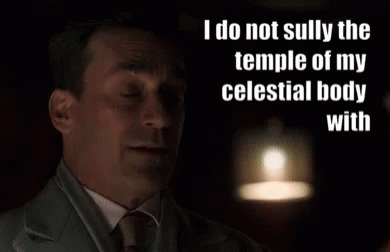
When we are introduced to Gabriel the first few things out of his mouth are insults. Although we’ve had Aziraphale for only like 5 seconds and we already can tell how passionate he is about food. Aziraphale is eating sushi, presumably a favorite food given his familiarity with the chef, and taking some time for himself, and like a good family member offers some to his “fellow”, his “ally”, an entity who supposedly had his back. When the food is refused, it’s presented with a dismissive tone and called “gross matter” that would “sully” his body. This is is a smack in the face to Aziraphale and he quickly lies, saying he’s only eating to keep up appearances. This shutdown of interests and likes pushes Aziraphale to be like Newt, ostracized from people who are supposed to be his friends. Then, like Anathema, his exposure to the “great plan” and what is expected of an angel is villanizes his interests, causing him to feel shame and associate his individuality and sense of the self with “wrong” or “broken”.
This differs greatly from how Crowley and Aziraphale meet. Although we see Crowley tempt eve, they talk to each other as equals and Crowley does the one thing Heaven has never done -- tell him he’s doing a good job. There is no harm in eating or enjoying eating but he’s being treated like he’s committing some kind of sin. Crowley, in contrast, reaffirms Aziraphale’s actions and helps relieve his concerns. Gabriel, instead, aggravates his anxiety.
Then, we see Gabriel do one of the more insidious discreditings of Aziraphale’s sense of self at the bookstore. Whereas Crowley is able to tell when there are new books in the shop and knows that losing the shop is a significant loss for Aziraphale, Gabriel can’t be bothered (more on that at the end). At some level, it’s his disdain for humanity that makes him indifferent at best about the bookstore. But, his disregard for Aziraphale’s livelihood, something that is a clear point of pride and joy, is belittling. He is demanding that Aziraphale drop everything he loves to fight the great war, and while asking to fight is not intrinsically abusive (Crowley too asks Azi to join him and fight), the dynamic is not of equals with the same motivations, rather it is clearly meant to be talking down to Aziraphale. Gabriel sees no value in the shop or his “brother” and if he can’t see it there must not be any. The blow to Aziraphale’s emotional state is apparent in the grimace he gives the two angels.

Even when Aziraphale, (who does his best to uphold what he has been conditioned to be “right” and after many millennia has grown to trust Gabriel despite no reciprocation) DOES go to Heaven with a plan, news about where the anti-christ is and how to stop it, or push him to be neither satan no saint, he’s met with more belittlement. None of the angels at the meeting believe that Aziraphale can accomplish his goals, but worst than that, none of them are willing to give him the support he needs to achieve his goal. Sure they don’t smite him where he stands for purposing an alternative to the end of the world, but that’s not the same as being a support system he can rely on. He can’t even voice here the reasons why he cares so deeply about Earth or why they may be wrong. He is not their equals in their eyes.
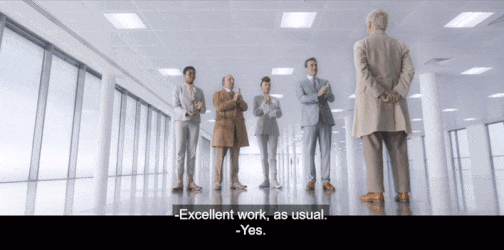
You can also see it at the park when Gabriel and Aziraphale are running, and Gabriel punches his stomach, telling our adorable angel he needs to lose the gut, devaluing Aziraphale’s worth further. Even the face he makes in the gif below is filled with condescension. He’s not taking Aziraphale, or Aziraphale’s concerns seriously.

Which brings me to the final nail in Heaven’s abusive coffin via Gabriel. The intended violence of his “sentence” is meant to, like the fall, strike the fear of abandonment, disownment, and death into Aziraphale. There is no scenario (except the one we see) where Aziraphale is meant to make it out of Heaven alive.
After Armaggeddon’t Gabriel, who knows Aziraphale’s intentions of diverting the apocalypse, if perhaps not the rationale, is pleased to belittle the restrained Aziraphale. There is legit joy in his face when they force Aziraphale to walk into the hellfire.

In the above gif, you can see that not only is he being verbally abusive, throwing ill-intent insults at Aziraphale, but that he fully expects the fire to kill his supposed brother and PLEASED about it.
LET ME REPEAT THAT. The place/people who Aziraphale is supposed to love, trust, and be loyal to are ready, and happy to, drop him at a moment’s notice. At this point, considering the layers of abuse already outlined, Aziraphale’s insistence that he can’t be on Crowley’s side because Heaven wouldn’t like it is symptomatic of someone who is longing for a genuine, honest connection and has been “raised” to believe that is Heaven, no questions allowed.
this is not to say Heaven isn’t above physical abuse towards Aziraphale.

I’ve seen some excellent metas floating around dissecting the Crowley vs. Aziraphale and the Angel’s vs. Aziraphale “intimidation” (although I can’t find them now, please @ them if you know them) and the bottom line is that Aziraphale is terrified by Uriel and her legion of Angels much more than Crowley ever could. Aziraphale is damn well aware of how violent the angels who aren’t even touching him can be vs. his calm response to Crowley pushing him against a wall.
Which brings me back to Crowley and Aziraphale. Although I can (and will) do another one of these on Crowley, and dive deeper into the implications of their relationship and the closure they need/got by being on their own side. I want to take a second to articulate just how much Crowley does not (try) to do be this way to Aziraphale.
I maintain that Crowley, is aware of Heaven’s abusive tendencies due to his fall and the subsequent fear that must have caused other angels, I do not think he’s aware of the levels of mental, verbal, and emotional abuse that heaven throws Aziraphale specifically. The way Aziraphale talks up heaven, you’d suspect he was getting awards left and right, or at least some semblance of respect. But no. In stark contrast to Gabriel, Crowley will entertain Aziraphale’s interests/passions like food and books even if they aren’t something he indulges in often himself. Whereas I said earlier Gabriel dismissed the bookshop and presupposed it was something Aziraphale would be able to drop like a rock, Crowley KNOWS that Aziraphale cares so deeply for his books, his food, and his identity as an angel, that losing any of them would be unbearable. Although Crowley pushes and sometimes goes too fast for Aziraphale, he’s not approaching Aziraphale in bad faith.
Of the 10 observed historical meetings, we see Crowley initiate at least 6 of them (it could be said the Victorian meeting is also Crowley’s doing, but the jury is out about who called that particular meeting as Aziraphale walks toward Crowley first in that scene). We also see Crowley go out of his way to do things that make the Angel comfortable and does not once break his trust. Although he storms out 3 times in the show, he always uses it as breathing room, before once again seeking Aziraphale out, and doing his best to work on their relationship AS EQUALS. Their dynamic (Which I’ll go into more later) is not on uneven footing, and both parties treat the other with a kindness neither of them is offered by their respective worlds.
TLDR: Crowley’s love for Aziraphale helps heal him from the abuses of Heaven
Thanks for coming to my tedtalk
#good omens#ineffable husbands#crowley and aziraphale#crowley#aziraphale#the ineffable plan#thanks for coming to my ted talk#tw: abuse#tw: mentions of abuse#tw:trauma#tw: trauma#these two are in love
2K notes
·
View notes
Text
Book Review

Wicked Intentions. By Elizabeth Hoyt. New York: Forever Publishing, 2010.
Rating: 2/5 stars
Genre: historical romance
Part of a Series? Yes, Maiden Lane Series #1
Summary: A man controlled by his desires . . .
Infamous for his wild, sensual needs, Lazarus Huntington, Lord Caire, is searching for a savage killer in St. Giles, London's most notorious slum. Widowed Temperance Dews knows St. Giles like the back of her hand-she's spent a lifetime caring for its inhabitants at the foundling home her family established. Now that home is at risk . . .
A woman haunted by her past . . .
Caire makes a simple offer-in return for Temperance's help navigating the perilous alleys of St. Giles, he will introduce her to London's high society so that she can find a benefactor for the home. But Temperance may not be the innocent she seems, and what begins as cold calculation soon falls prey to a passion that neither can control-one that may well destroy them both.
A bargain neither could refuse.
***Full review under the cut.***
Trigger Warnings: violence; blood; dubious consent; sexual content; references to childhood neglect
Overview: I initially picked up this book because I adored the sex worker-positive themes in The Raven Prince, and I was hoping for some similar attitudes in this book (even if it wasn’t about sex work). Unfortunately, I didn’t find Wicked Intentions nearly as captivating as The Raven Prince. It’s not that the idea for this book is bad - I think there were some interesting themes thrown around, and the class difference between the two protagonists could have been an interesting angle to the development of their relationship. However, I personally found the hero to be insufferable, and the writing detracted from the overall sentiments of the novel.
Writing: This book primarily suffers from what I think is poor craft. Hoyt seems to not know when a scene is warranted versus when it can be skipped over or abbreviated, often inserting moments that are just conversations between characters which summarize a scene we’ve just read. For example, there’s a point when Temperance spends the night at Lazarus’ mansion to take care of his infected wound. When she returns home, she finds herself confronted by her brothers who are concerned for her well-being and reputation. Hoyt gives us a conversation between them where Temperance explains her relationship with Lazarus, what she was doing that night, and why she didn’t go to her brothers for financial help, none of which is new information to the reader, nor does it develop the relationship between Temperance and her siblings in meaningful ways. Her brothers disappear and don’t show up again for some time.
Speaking of conversations, this book also suffers from a disproportionate ratio of dialogue to description. Much of this book is dialogue, which means that information is mostly relayed through character speech - including what characters are doing in the scenes. Moreover, the sparse attention to describing what things look, smell, or feel like means that this book doesn’t have a strong sense of atmosphere. For example, there is a scene in which when Lazarus passingly remarks on the stench of a gin joint but the book doesn’t describe what that smell was like, and another where Temperance is enraptured by a musical number but the book does not describe what the music sounded like or why it provoked such emotions in her. I also didn’t get the sense that the slum was slum because the setting was never treated as a character in its own right, and I think the book as a whole suffered for it.
I also think Hoyt doesn’t quite know how to use intertextuality to great effect. Each chapter of this book (as with The Raven Prince) opens with excerpts from a fictional fairy tale, which, when taken altogether, are supposed to parallel the themes of the novel as a whole. However, not all excerpts line up with the contents of each chapter, so the fairy tale is only connected to the main narrative on a surface level. For me, intertextuality needs to be more consistent to be effective.
Lastly, I don’t think Hoyt quite knew how to create suspense. Not only were there no clues for the reader to try to piece together regarding the main murder plot, but Hoyt withholds a lot of information regarding Temperance’s and Lazarus’ personal secrets. We’re told that Temperance has some dark spot on her past, and allusions to her “sin” crops up every once and a while, but combined with the lack of motivation to solve the main mystery, I was more frustrated than intrigued. I’m a firm believer that too much information withheld is actually counterproductive; suspense involves a careful balance of making just enough information available to make someone want to keep reading without withholding so much that they become disinterested. I don’t think this book achieved that balance.
Plot: The main plot of this novel revolves around two protagonists who need something from one another. Temperance, our heroine, runs a foundling home (something like an orphanage) in a crime-ridden slum of London, and is in need of a patron to keep the doors open. Lazarus, our hero, is an aristocrat who needs help investigating the murder of his mistress, who was found dead in St. Giles. He agrees to help Temperance find a patron among the upper class if she helps him navigate St. Giles. On the surface, it seems like the characters’ business relationship could be productive for exploring themes such as class, charity, etc. However, things got off to a rocky start, only to go downhill (in my opinion) from there.
Not much was done to show that Temperance was very street-smart, so Lazarus’ decision to ask her for help seemed rather random. For all Hoyt’s insistence that Temperance knows St. Giles like the back of her hand, she doesn’t necessarily go anywhere or do anything that Lazarus himself couldn’t do himself (albeit a little slower). She seems to offer no unique knowledge that actually helps with the mystery, and even the formation of their business relationship was so contrived that it stretched the bounds of believability. Lazarus decides to ask Temperance for help simply because he saw her in the street at night, returning to the foundling home after rescuing a new charge, and he does so by following her and breaking into her house. That Temperance accepts so coolly, even considering her financial desperation, seemed so far from what a rational woman would do that I had trouble accepting it.
From there, the plot seemed to mostly revolve around putting Temperance in awkward situations so that Lazarus could swoop in and (try to) save her or make crude sexual remarks. I couldn’t bring myself to feel invested in the murder plot because Lazarus himself didn’t seem to know why he was trying to catch the killer (he explicitly states that he’s not sure if he’s doing it because he’s bored or because he thinks he ought to feel something for his mistress, when he doesn’t). Temperance’s pursuit of a patron was a little more interesting, since I felt like she was actually invested in her foundling home, but even when she’s being an amazing negotiator, finding her way in upper class gatherings that are unfamiliar to her, her agency is undercut by Lazarus, who hovers and seems to dictate where she goes, who she speaks to, etc.
The side plot with Temperance’s sister, Silence, is also somewhat awkwardly inserted. Silence’s story revolves around her trying to save her husband from financial ruin and jail by making a bargain with the most notorious thief in London. While I could admire her initiative, I ultimately thought it was so disconnected from the main plot that it distracted rather than enhanced the narrative as a whole. That Temperance herself didn’t seem to think about it much also made me skeptical of its importance, and Hoyt spends so little time on it that it felt like it didn’t need to be included at all.
Characters: Temperance, our heroine, is admirable as a confident, compassionate mistress of a foundling home in the roughest part of London. I liked that she was so invested in her charges and the running of the home, and that she was willing to risk her life and reputation for her cause. Even when she later reveals that she’s doing all of this out of some misguided sense of penance, I could admire the way she took charge of running such an operation, and the responsibility she accepts. I also liked that she showed kindness to people who least deserved it, partially out of a sense of Christian duty, but also out of what I saw as a desire to see people for who they truly are, not for where they were on a social hierarchy. I wish Hoyt had leaned into this more.
However, my admiration did not extend to Lazarus, our hero. He’s an archetype that I’m frankly sick of seeing: a gruff loner who is overly possessive of his love interest, making constant references to how he feels no emotions and doesn’t thinks he deserves kindness. He was described as a “predator” more than once, which I can only assume was supposed to be darkly alluring in that alpha-male/bad boy kind of way, but personally, I found it tiresome to watch him manipulate Temperance for his own amusement. He would frequently make mean or crude remarks just to provoke anger or embarrassment in Temperance, mostly because he found the prospect of “breaking” her arousing. I would have much preferred to see someone who was a little damaged (as we all are) with actual flaws, but who was compassionate under the facade. For example, maybe Lazarus could have been great with children, thus making him invested in Temperance’s foundling home, or maybe his selfish hedonism could clash with Temperance’s charitable interests in ways that brought out productive methods of dealing with Lazarus’ past. Something more than just “bad boy is an asshole to everyone he meets because his childhood trauma makes him feel nothing.”
The supporting characters had the potential to be more interesting if they had been given more to do. Temperance’s siblings, for example, had compelling personal stories, and I found their relationships to each other to be intriguing, if only they had been explored a little more. Her sister Silence is admirable as an agentive woman who takes matters into her own hands when pushed, and her brother Winter’s sense of duty and genuine concern for his family - even at the cost to his own health - is quite sweet. Even Lazarus had some people around him that I found enjoyable. For example, he has a single “friend” (of you can call him that) named St. John, who calls out Lazarus’ selfishness and challenges him in ways that I think could have been used more effectively to develop Lazarus’ character. Lady Hero, a duke’s daughter who becomes acquainted with Temperance during upper class parties, is remarkably humble and kind, and I found myself wishing that Temperance would dump Lazarus and just go for Hero (they had much more genuine chemistry, borne out of real interest and kindness, than Temperance and Lazarus).
Other: I’ve seen a couple reviews complaining about the lack of historical accuracy in this book, but honestly, that’s not the problem. You can have women be agentive (and respected!) before the advent of feminist thought or have people talk about emotional/mental pain before the advent of formal psychology - formal institutions do not necessarily indicate the beginning of an idea. Because Lazarus was such an unlikable love interest, I did not find the blooming relationship between him and Temperance engaging. Their romance centers around each learning to deal with their pasts - Lazarus learns to care about a woman as opposed to using them to satisfy his sexual urges, and Temperance learns to let go of her past guilt. I don’t like starting from a place of “man views women as objects for his pleasure.” It’s not an attractive flaw. Make him a rake, sure, but have him actually see women as people, for god’s sake. Because Lazarus was so possessive and tormented Temperance for his own amusement for the first half of the book, and for the second, he was learning that he could actually care about a woman as a person, it never felt like he was truly learning to put her well-being first, just that he liked her for what she could do for him. I also disliked how upset he got when he assumed Temperance was using him for sex - like he’s one to get angry about that when he’s done the same thing to countless women.
Their relationship also seemed ill-suited in that Temperance states multiple times that her involvement with Lazarus has caused her to neglect her duties, both to the foundling home and to her family. I think such a realization could have been used productively to explore how selfish desire can be destructive, or, considering what Temperance is really feeling guilty about, there could have been some interesting commentary on how society views female sexuality as inherently sinful. However, it seemed to me that Hoyt wasn’t interested in these larger ideas.
When Lazarus and Temperance do engage in sexual activity, I had mixed feelings. Lazarus has this thing where he can’t bear physical touch unless he’s the one initiating. How convenient. This means that more often than not, sexual activity is on his terms. I’ve read books before with this type of touch-aversion, and I’ve read books that did it well. But in this case, it was uncomfortable because it was accompanied by the desire to “break” or “liberate” his partner. Granted, over time, he does become more receptive to Temperance initiating intimacy, which is great, but I honestly couldn’t see it as much more than an excuse to be a dominant asshole.
Despite Lazarus learning to let Temperance initiate, the issue of consent was frequently blurred. There are scenes when he refuses to stop what he’s doing (out of the misguided sense of helping her “let loose”) and one where he refuses to untie her from the bed unless she discloses what’s bothering her. The timing of their sexual activity is also usually inappropriate. For example, Temperance meets with a would-be patron only to discover he wants to have a sexual relationship with her. The patron kisses her non-consentually and probably would have assaulted her, but Temperance twists his ear to disable him, and Lazarus bursts in and whisks her away at the right moment. Soon after, Temperance kisses Lazarus passionately. Later, Temperance’s sister makes a bargain with a notorious thief to save her husband from financial ruin. He agrees to help her in exchange for her spending the night with him and walking down the street in a disheveled state after, ruining her reputation. Silence insists that the thief didn’t touch her and was only interested in making her appear ruined (why? just to be terrible?), and says that she only went to the thief because she thought Temperance was too busy to care. When Temperance learns of what happened, she goes to Lazarus in tears. He kisses her and she falls asleep at his house. Not soon after, they have sex for the first time. Temperance doesn’t attempt to get in touch with her sister for some time after. It seemed to me, then, that Silence was right, and maybe Temperance does have something to feel guilty for - not her sexuality, pe se, but the way she allows it to run her life.
Speaking of sexuality, I disliked the way kink was handled for the majority of this book. Lazarus is notorious for his “deviant sexuality” - he enjoys blindfolding and tying his sexual partners to the bed, partly because he can’t bear to be touched unless he initiates it, and partly because he can’t bear to have these women look him in the eye and “see him.” With Temperance, of course, it’s different. He doesn’t want to have kinky sex with her until she initiates it, and she only does so in the attempt to punish herself for "sin.” It turns out ok later, but much more time is spent viewing it as shameful than normal.
And lastly, there were some moment which, while not outright offensive, were nevertheless... not great. A bunch of prostitutes are brutally murdered. Lazarus’ manpain is driven by the death of his sister. Temperance decides to attract a patron by having an open house, inviting rich people to come gawk at their poverty because “viewing the unfortunate... was fashionable.” I dunno.
Continuing with the series? Unless there’s a novel that’s fairly highly rated, probably not.
Recommendations: I would recommend this book if you’re interested in 18th century England, historical romance, murder mysteries, differences in social class, and kink.
4 notes
·
View notes
Text
The best and worst films of 2019
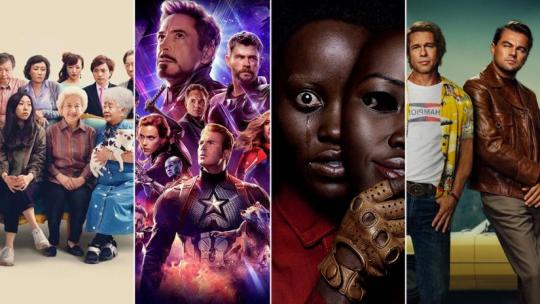
It was of the general consensus that 2019 was a truly amazing year for cinema, with audiences treated to a wide and impressive array of films. As usual, the year produced a number of sure bets from both well known directors and arthouse favourites, but it also treated cinemagoers to some truly unexpected treats from the cinematic mainstream.
Having watched just over 100 films (released in Australia), those that made this year’s ‘best list’ have been selected on the basis of the lasting impression they have left on this viewer after the lights have come up and the curtain’s been drawn.
So, what succeeded and what failed?
Ladies and gentlemen, may we please offer for your consideration…
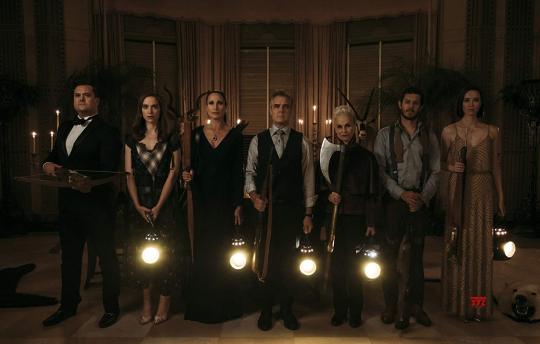
50. READY OR NOT
49. GLASS
48. HAL (DOCUMENTARY)
47. STUDIO 54 (DOCUMENTARY)
46. HOTEL MUMBAI
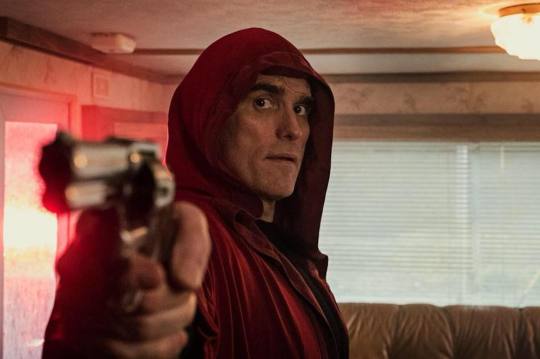
45. THE HOUSE THAT JACK BUILT
44. CRAWL
43. MISSING LINK
42. SCARY STORIES TO TELL IN THE DARK
41. THE CLOVEHITCH KILLER
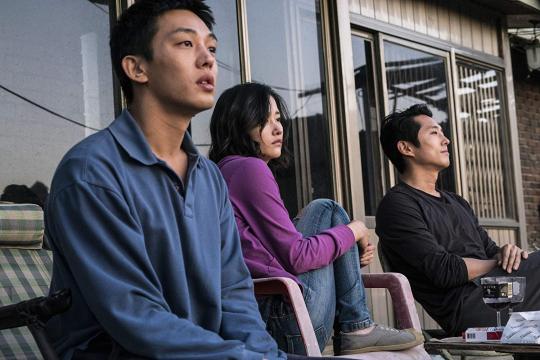
40. BURNING
39. AVENGEMENT
38. YESTERDAY
37. THE SISTERS BROTHERS
36. BRIGHTBURN
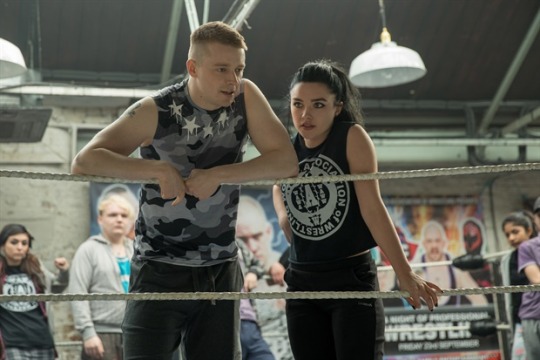
35. FIGHTING WITH MY FAMILY
34. HAIL, SATAN (DOCUMENTARY)
33. VELVET BUZZSAW
32. COLD PURSUIT
31. STAR WARS: THE RISE OF SKYWALKER
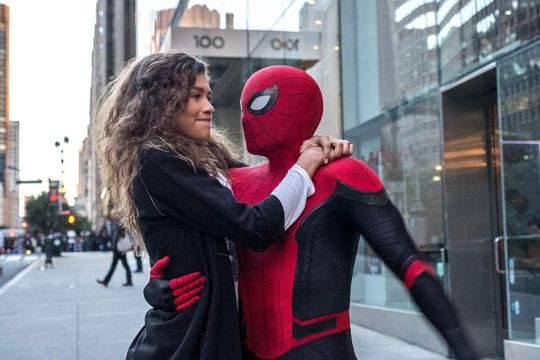
30. SPIDER-MAN: FAR FROM HOME
29. BEN IS BACK
28. THUNDER ROAD
27. THE REPORT
26. TOY STORY 4
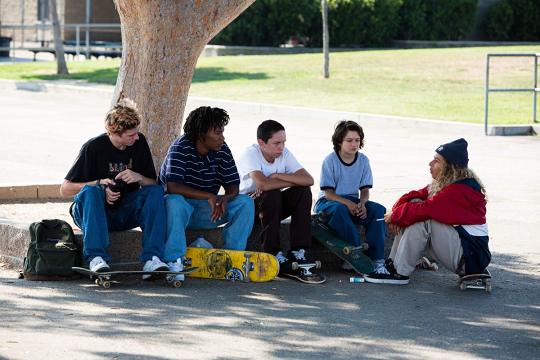
25. MID 90′S
24. LAST BREATH (DOCUMENTARY)
23. VOX LUX
22. GLORIA BELL
21. THE FAREWELL
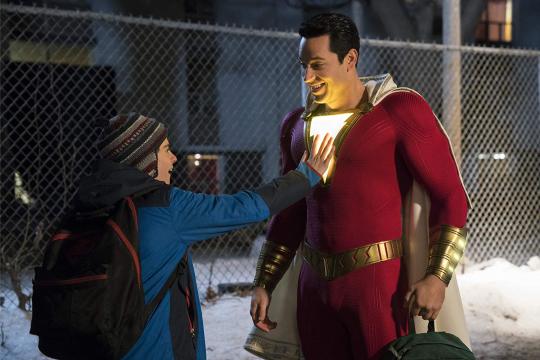
20. SHAZAM
19. FREE SOLO (DOCUMENTARY)
18. KNIVES OUT
17. BOOKSMART
16. DRAGGED ACROSS CONCRETE
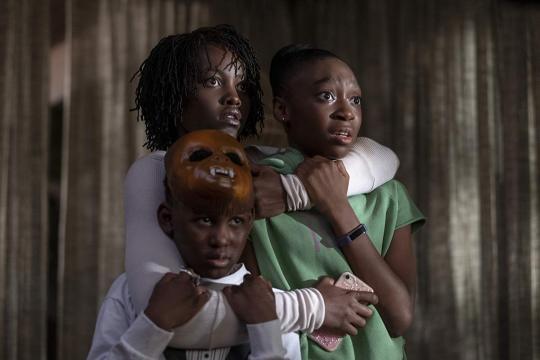
15. US
14. ROCKETMAN
13. AD ASTRA
12. JOJO RABBIT
11. MIDSOMMAR
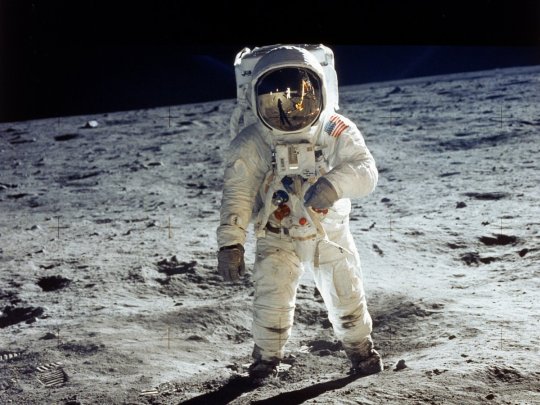
10. APOLLO 11 (DOCUMENTARY)
Though this outstanding assemblage of archival footage about the 1969 Apollo 11 moon landing featured no narration, interviews or analysis, director Todd Douglas Miller successfully managed to create an amazingly beautiful and surreal experience about one of humanities greatest achievements. Featuring never-before-seen footage of both the launch and the mission itself, ‘Apollo 11′ was as thrilling as any sci-fi and eye-wateringly beautiful to behold.

9. EIGHTH GRADE
It was an impressive year for many ‘coming-of-age’ films (‘Booksmart,’ ‘Good Boys,’ ‘Mid 90′s’) but it was writer-director Bo Burnham’s poignant and sensitive exploration of the challenges of early adolescence in the age of social media that really resonated. Focusing on the socially awkward Kayla - played with exquisite, jittery control by teen actor Elsie Fisher - ‘Eighth Grade’ was a thoughtful observation on the universal truths of growing up in the modern age.

8. FORD V FERRARI
With director James Mangold at the wheel, ‘Ford V Ferrari’ was a highly enjoyable sports car racing movie that left audiences with a lasting and highly satisfying impression all the way to the finish line. Based on the rivalry between the car manufacturers Ford and Ferrari in their pursuit to win the 24 hour Le Mans sports car race in 1966, ‘Ford V Ferrari’ featured heart-pounding racing sequences and impeccable performances from Matt Damon & Christian Bale.

7. THE NIGHTINGALE
Though not a horror film in the strictest definition of the term, you were less likely to find a more horrific cinematic experience this year than Australian director/writer Jennifer Kent’s 'The Nightingale.’ Kent's follow up to her critically acclaimed debut ‘The Babadook' was an extremely unsettling and bleak revenge tale, that relentlessly beat the audience with its unflinching violence and depictions of cruel racism.
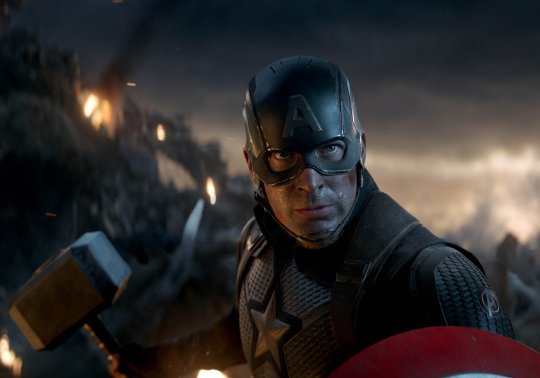
6. AVENGERS: ENDGAME
"Part of the journey is the end...” A cathartic and satisfying experience for all MCU fans worldwide, 'Avengers: Endgame' was everything we needed and more than we deserved. Full of callbacks and emotional pay-offs 10+ years in the making, ‘Avengers: Endgame' was a thrilling conclusion and a deeply emotional exploration of loss and love, duty and honour, friendship and family. Just remember to lean into the tears.

5. JOKER
Whether you ended up either loving or hating ‘Joker,’ there was no denying that the landscape of cinematic comic book adaptations had been changed forever. Drawing inspiration from Martin Scorsese’s ‘Taxi Driver’ and ‘The King of Comedy’ and featuring Joaquin Phoenix’s magnificently dedicated and exhaustive performance, ‘Joker’ was a truly outstanding cinematic achievement that would be discussed and debated for many years to come.

4. THE IRISHMAN
A magisterial entry in his long and masterful career, Martin Scorsese’s violent yet poignant crime epic featured flawless performances from a stellar ensemble cast (De Niro, Pacino, Pesci, Keitel). With a script that was nothing short of a master work, coupled with an intricate production design and stylish cinematography, ‘The Irishman’ felt like an apt end point for Scorsese’s fascination in narratives detailing the ultimate price that comes from a life of sin.
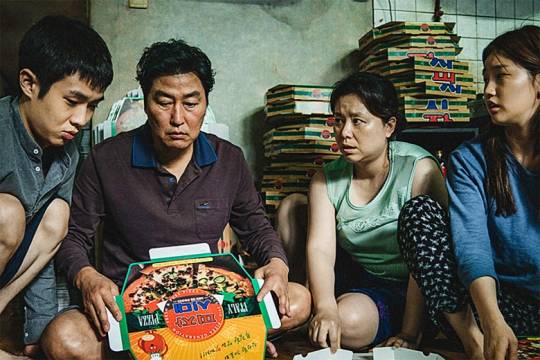
3. PARASITE
Renown South Korean filmmaker Bong Joon-ho already had an impeccable track record (’The Host,’ ‘Snowpiercer,’ ‘Okja’) but really stepped up his game with this brilliant and powerfully revealing social satire. An intricate look at modern-day social hierarchies, ‘Parasite’ kept flipping audience expectations with its radical shifts in tone - from clever comedy to violent, dark tragedy - whilst delivering some brilliant thematic elements.
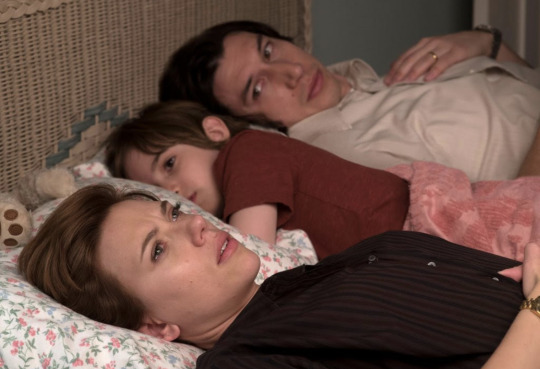
2. MARRIAGE STORY
Writer-director Noah Baumbach’s drama about the pain of the divorce process was a phenomenally crafted piece of cinema. A tragic tale amplified by both Baumbach’s screenwriting genius and tour-de-force performances from Adam Driver and Scarlett Johansson, ‘Marriage Story’ highlighted the struggles of an everyday situation and the real efforts to maintain it, leaving audiences with heavy hearts and thoughts.
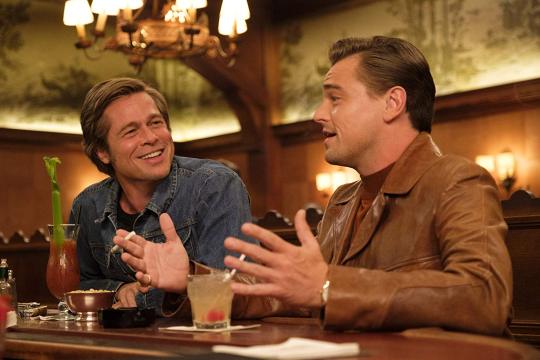
1. ONCE UPON A TIME...IN HOLLYWOOD
Set against the backdrop of Hollywood’s changing of the guard and the looming large presence of the Manson Family, ‘Once Upon A Time...in Hollywood’ was a melancholy, slow burning, comedic love letter to a filmmaking era long gone, and easily one of Quentin Tarantino’s best films.
As a wonderfully painted portrait of 1969 Hollywood, Tarantino delivered something truly special - a cinematic opus featuring so many film references, both obscure and in your face, that it was an absolute delight for cinephiles everywhere to luxuriate in the sights and sounds of this historical fantasy.
Leonardo DiCaprio and Brad Pitt delivered the most emotionally vulnerable performances of their careers as soon-to-be has-beens, whilst the film’s vibrant production and costume design and playful soundtrack perfectly captured a snapshot of a special place and time in film history.
If Tarantino is still adamant to call it quits on his directing career after his next movie, ‘Once Upon A Time...in Hollywood’ was a timely reminder that we should all definitely try to enjoy the filmmaker whilst we still can.
...AND NOW, THE WORST!

20. UNDER THE SILVER LAKE
19. THE MULE
18. STUBER
17. AT ETERNITY’S GATE
16. IT: CHAPTER 2
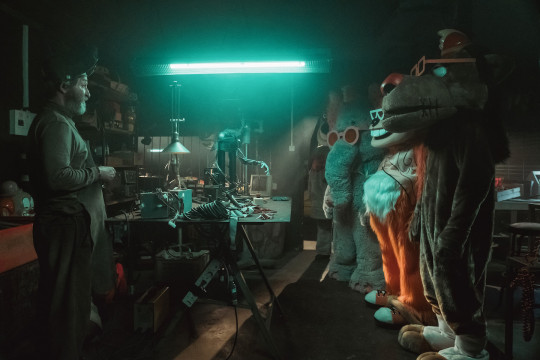
15. THE BANANA SPLITS MOVIE
14. HAPPY DEATH DAY 2U
13. ALADDIN
12. ANGEL HAS FALLEN
11. TERMINATOR: DARK FATE
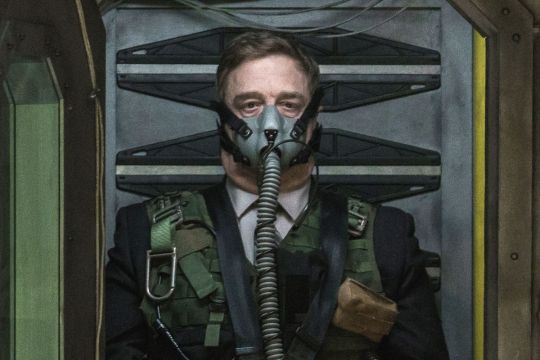
10. CAPTIVE STATE
Director Rupert Wyatt, the brains behind the effective ‘Rise of the Planet of the Apes’ reboot, easily delivered one of the worst sci-fi films of the year. Despite a premise filled with potential and talent both in front of and behind the screen, ‘Captive State’ was a major disappointment. The screenplay (co-written by Wyatt) was an epic mess of confusion that lacked both a compelling narrative and characters to hold it together, resulting in a huge misstep for all involved.

9. RAMBO: LAST BLOOD
It’s ironic a film franchise that started out telling the sad story of a man trying to show an uncaring world he was still a human being should have its final chapter demonstrate the exact opposite. This much touted ‘final entry’ in the Rambo saga was a deeply unpleasant and unnecessary exercise that featured little wit, inventiveness or originality. The character of John Rambo deserved a better swan song than ‘Rambo: Last Blood,’ and so did we.
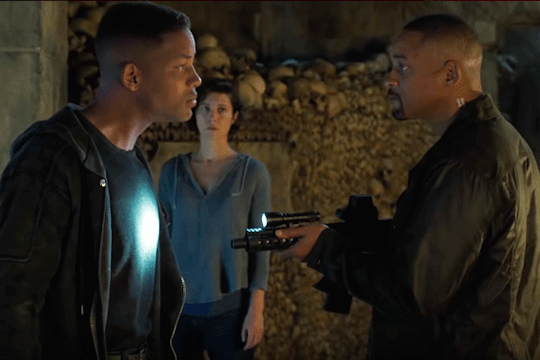
8. GEMINI MAN
Directed by Ang Lee and starring Will Smith as a government assassin facing off against a clone of his younger self, ‘Gemini Man’ was an empty and tiresome thriller dressed up in a lot of fancy tech, and Smith’s biggest box office flop since ‘Wild, Wild West.’ Despite costing $138 million to produce, all the Hollywood SFX wizardry in the world couldn’t excuse a lifeless picture, with the final result nothing more than a bland action clone.

7. THE LION KING
Soulless was how best to describe Disney's shot-for-shot live action version of the 1994 animated classic. The core failure of this latest incarnation of 'The Lion King' was the studio’s inexplicable choice to go fully photorealistic with the animation. The animal characters may have all been zoologically accurate, but there was absolutely zero expression or emotion conveyed in their faces (let alone the voice talent). Sadly, ‘The Lion King' was nothing more than a cash grab that relied heavily on the nostalgia and success of the original,

6. WELCOME TO MARWEN
Robert Zemeckis, the director behind such cinematic gems as ‘Forrest Gump,’ ‘Back to the Future’ and ‘Cast Away,’ was also responsible for this woeful and misguided outing. Despite being based on the true story of a man learning to cope with a terrible trauma through the power of art and imagination, ‘Welcome to Marwen’ focused its attention on the visuals of the story instead of its narrative. Our advice? Watch the original 2010 documentary ‘Marwencol.’
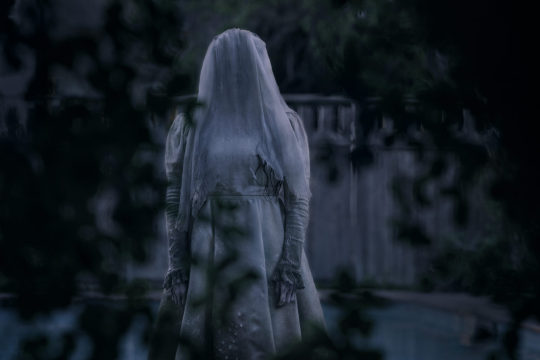
5. THE CURSE OF LA LLORONA
Let’s cut straight to the point - the reason Hollywood keeps making cheap, crappy horror films with little, if any, imagination is because they will always make their money back within the opening weekend. And ‘The Curse of La Llorona’ was a prime example of this, a formulaic slab of supernatural dirge destined to be forgotten by year’s end. Filled with jump scares, loud musical cues and devoid of any originality, horror fans deserved better than this.
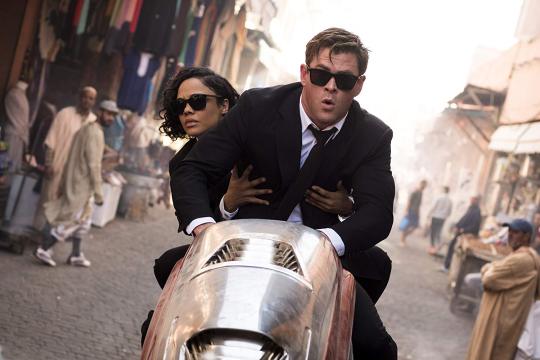
4. MEN IN BLACK: INTERNATIONAL
Despite the box office success of the first ‘Men in Black’ film and its two well-received sequels, ‘Men in Black: International’ was a dull and dreadful reboot that severely tarnished the franchise. There were all sorts of bad things happening in this fourth film, but none were as unforgivable as wasting the talents of both Chris Hemsworth and Tessa Thomspon. You didn’t need your memory wiped after this one - the movie did it for you.

3. DARK PHOENIX
The ‘X-Men’ films have been less hit and more miss in recent times and, unfortunately for fans, ‘Dark Phoenix’ closed out the this once-great franchise in an extremely disappointing fashion. Suffering from extensive rewrites and reshoots to the point where not even the film's stars knew which characters they were playing, ‘Dark Phoenix’ was a far cry from the pitch-perfect conclusion James Mangold gave us with the vastly superior ‘Logan.’
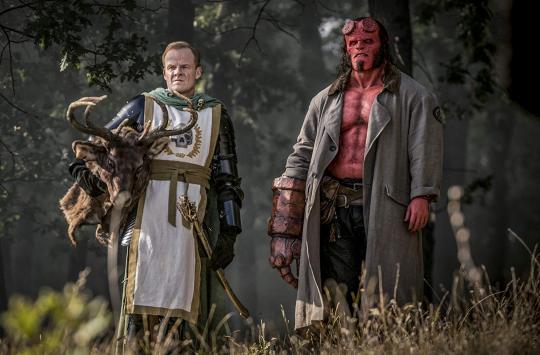
2. HELLBOY
Director Neil Marshall’s bloody misfire of the ‘Hellboy’ franchise was a damned mess, undeserving of both your hard-earned money and your valuable time. The film’s storytelling was clumsy rather than clever, the atmosphere oppressive rather than immersive and the characters colourless rather than captivating. Try to imagine Guillermo del Toro’s original two movies, except without any spark, wit, fun, tension and excitement. Absolute hell, boy!

1. CATS
Don’t act as if you’re surprised by this year’s winner of worst film - ‘Cats’ was an epic misfire, deserving of the vitriol it received from critics everywhere (the furry community, however, LOVED IT).
From the initial spark of the thought that turning Andrew Lloyd Webber’s musical into a film would be a good idea, the project was doomed. With every single decision involved in this movie more baffling than the last, the biggest and most fundamental problems were the concept design of the cats themselves and there being absolutely no semblance of a plot.
Despite there being pussy galore, ‘Cats’ failed to capture any sense of spectacle or fun, and instead plodded through an inane, boring and predictable story that was used mostly as a platform for some big West End musical numbers and A-list cameos.
Watching your neighbour’s cat lick its own arse was far more enjoyable to behold than this cinematic disaster.
7 notes
·
View notes
Note
TV series ask meme: Doctor Who
send me a tv series and I’ll tell you:
my all-time ultimate fave character: I’m not sure I have a favorite, but I have clung to Clara harder than any of the others. I like all the companions I’ve seen much of, some more than others, but she was the one who makes me think the most. I also really love Martha and Rose. I guess those three are my favorites, but it depends on what we’re talking about.
a character I didn’t used to like but now do: River Song. I understand some of the criticisms of her, but she grew on me to the point that I would say I like her.
a character I used to like but now don’t: I never liked her to begin with, but the original portrayal of Cassandra in 1x02 makes my skin crawl a bit because of the transphobia involved now that I understand it, which I probably didn’t in my early years as a fan. I appreciate that the second and final portrayal of her involved showing her some empathy, which I guess was a slight rebound on that, but still. Bad taste in my mouth.
a character I’m indifferent about: Thirteen, so far, because I haven’t seen her or her companions??? And I guess that I was just kind of put off by the very hamfisted pop-feminist marketing angle they went for. Like, the fact that the Doctor wouldn’t be opposed to regenerating as a woman had been foreshadowed since Eleven, so I don’t really think that we needed Simm!Master being made even more arbitrarily sexist than he already was (which was enough and made some kind of sense character-wise) and Twelve and co being all ~the future is female~ in the text of the show. I mean, I guess hedging your bets against idiot dudebros who can’t read the writing on the wall. But yeah, I hope to… one day enjoy some Thirteen but for various reasons including the way the marketing just made me feel blank about something I thought I would otherwise be intrigued by, I haven’t gotten around to it.
a character who deserved better: Martha Jones the mostest. Also, Danny Pink. Ianto Jones (Torchwood). Also Owen and Tosh but especially Tosh. Probably a bunch of other episodic characters, including that Family of Blood whom the Doctor went full wrathful-Eldritch-god on. Oh, and Donna Noble.
a ship I’ve never been able to get into: Doctor/Donna as a romantic thing. There are others I’ve seen that I’m indifferent to or put off by, but that one is one that I can sympathize with the urge to ship but just… can’t.
a ship I’ve never been able to get over: Honestly since I’ve liked Doctor Who for over a decade, this is a hard question to answer. Doctor/Rose was one of my first ships as a teenager that I really understood in a fannish way, but over time the fire about it has cooled somewhat for me. I like it still, but I feel like over time I stopped being as OTP~ about it. So Doctor/Rose is a mainstream ship that I really like when presented in certain ways. Clara/Danny broke my heart. I liked Amy/Rory as they matured, and “together or not at all” made me really happy even if I was iffy about the early execution. I still tear up a little at the musical piece from that scene. And… uh… I am forever transfixed by Doctor/Master | Missy and Doctor (especially Twelve) & Clara and might be persuaded to ship it under certain circumstances. See, I can’t choose, but I guess if I had to it would be one of the last two. Oh, and it’s pretty much bits and pieces except on the Torchwood side, but one of my favorite rarepairs in the world is Jack Harkness/Martha Jones and I would’ve endgamed it so hard had Torchwood S3 ever existed.
a cute, low-key ship: Jenny/Vastra? I’m mostly pretty “oooh I can’t decide” about choosing ships and favorites, but in this case I was pretty, like, on-board with it. I wrote a fic one time which is more than I can say for even ships I’ve been more into. Doctor/River wavers between “I accept it” and being low-key to very occasional bursts of Strong Feelings that would put it in the above-category.
an unpopular ship but I still enjoyed it: Jack Harkness/Martha Jones.
a ship that was totally wrong and never should have happened: The sexist, dehumanizing elements of the episodic romance in Love and Monsters have aged really badly. At first, I didn’t really fully understand why so many people hated it so much, but I get it now, even though I liked the underlying concept for that episode a lot. I also have a lot of discourse-y opinions about why, while I enjoyed some of it and rooted for Ianto and Jack both to be happier, together or apart, that I really don’t like Jack/Ianto endgame and/or it being treated like this Epic Romance when it really only became Epic because Ianto died horribly. I would just prefer to ignore CoE (I have never watched it) and endgame ship them with other people. But this is a sin to people who are major Janto shippers, and I support you! I just… don’t personally… jive with it. It felt like Ianto settling for me and then getting killed for it.
my favourite storyline/moment: The whole narrative throughline involving the Doctor, Clara, and Missy in S8 and S9. It really played with the whole “the bad guy is right” and “who is the bad guy” in a way that never became so nihilistic I couldn’t stomach it, and in fact led to Missy’s redemption, which is hitting all of my happy buttons.
a storyline that never should have been written: The ending of Love & Monsters (the stupid kids-show-write-in-monster resulting in a woman being a tile that performs oral sex for the rest of her lifespan is bad but didn’t have to be like that). I’m really bitter about The Girl in the Fireplace even though there are parts of it that I have grown to be at peace with. I still would probably be happier if the episode mysteriously vanished from memory. That bizarre thing with the Daleks in business suits and something about pigs? I hate The God Complex, like, a lot. I only ever watched it once and am afraid to try and stomach it again. And there are others I’m just indifferent about or have mixed feelings about, but those are my axes to grind. Interesting how, at this point, most of my gripes happened in the RTD era, though The Girl in the Fireplace was entirely the result of then-Moffat’s textual criticism on how stupid it would be for the Doctor to fall in love with a common girl. Probably my favorite episodes in S1 are actually the ones that involve the Slitheen, but I hate the fatphobia and fart-joke-heavy aspects of those as aliens. Would tweak the actual threat, though the writing of the overall story feels like some of the best in early Doctor Who revival to me?
my first thoughts on the show: The first episode I ever saw was The Idiot’s Lantern, and I really understood nothing about it except that it was science fiction, a revival, and something a British friend watched every Saturday. I was perplexed, but intrigued. Then I caught random smatterings of episodes over the rest of my Christmas break, and by the time I saw The Christmas Invasion on Christmas, I was in love and given a new lease on hope. I had just gone through a personal trauma, and it really helped me to feel something about anything again, and S3 and Simm!Master’s role really helped me grapple with what I’d been through and feel empowered enough to survive.
my thoughts now: I always tell people that I’m kind of indebted to Doctor Who for my life. And I feel like that’s true. My emotional involvement with it varies a lot, depending on when you’re talking to me, but it’s a comfort-attachment for sure. There are certain lines or scenes from it that form some of the foundation of my personality, when I manage to have one. I think it is at its best when it is showing love for what it is: healing, restorative, and revolutionary, but on the other side of the coin, cruel, dangerous, and destructive. I think its engagement with questions about the nature of love and responsibility toward one’s fellow-living-things is when it is the most fun. I haven’t really interacted with it as much since Clara left. I have seen about half of Bill’s episodes, the missing chunk being the middle of S10, and I’ve seen nothing after that. I will one day, probably.
2 notes
·
View notes
Text
To Live As Free Men and Women
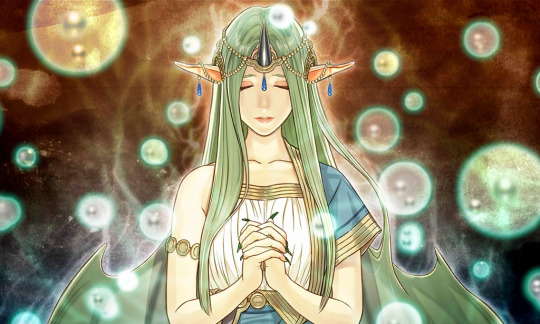
Over and over again I hear the conflict of echoes summarized as “shifting from relying on gods to relying on humanity’s own accomplishments.” And on the surface that makes perfect sense. All the endgame quotes are about refusing to bow down to Duma and wanting to fight for their world.
However this reading has always not sat well with me because of two things. First this celebration of humanity’s individual strength is not brought up until the last moments of Act 5. To call it the main theme when so much of the earlier conflict was about class feel disingenuous. Second, this reading tends to pit Alm and Celica as opposites where Alm shows Celica the light. Aside from disliking the convenient dismissive treatment of the female protagonist, my obvious bias aside, it just isn’t good storytelling to have one of your leads solely exist to be wrong. Not to mention the game is going for a sort of dualism between the two of them, so to paint Celica’s route as just one mistake is short-sighted.
So the question remains, what is the main theme of Echoes? Does it have a theme? Regardless of your thoughts on the game, it still sends a message, every piece of art does, even if it is as banal as “good will always triumph,” that is still a theme. So to examine echoes, thoroughly we have to find a thread that manages to link the entire game together.
The best place to start is obviously the beginning. After the opening video. We are given a little exposition dump about the state of Valentia. Two countries and two gods, one emphasizing war and the other emphasizing peace. Makes sense, it is pretty obvious which one we’re supposed to root for and what country we’ll be following. Cue the prologue where after everyone was so excited to meet the knight in the woods, he turns out to be totally willing to murder children. It would be so easy to write Slayde off as a bad apple but the narrative makes no attempts to try and act as if anything about him is non-standard. If anything the start of Act 1 goes out of its way to detail just how rotten Zofia is. It’s fitting that Alm joins a rebellion first and foremost, and it is not until Act 3 Rigel really becomes an antagonist. And much of Act 1 is targeting Zofia’s own corruption, its bandits and power-hungry nobles. Despite being massive problems, Alm rushes headlong into them, wanting nothing more than to protect people.
Act 2 starts similarly, Celica learning of just how horrible the pirates are, and how they have been allowed practically free reign of the seas. She has even fewer reasons to get involved, considering her party is literally five people, but she can’t secure safe passage otherwise so let’s do this. If it takes fighting necrodragons then she will fight necrodragons.
Despite both of their reckless behavior, they accomplish real change and make things for the better. And so after growing up into the people they are today, Alm and Celica in an obviously heartwarming manner. Except quickly things tilt sideways.
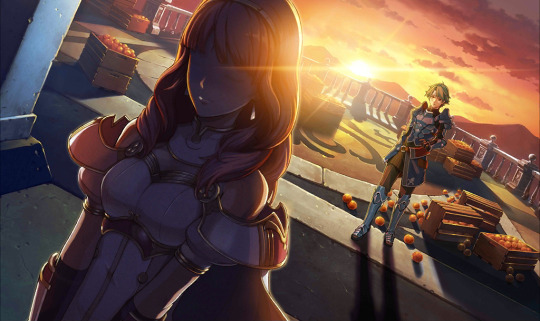
Celica’s hypocritical behavior has been long-pointed out, wishing him to avoid bloodshed after just killing a pirate king, but things still stay civil until this moment.
“Alm: Nrgh… If I didn’t know any better, I’d swear I was speaking to a blue blood. My station doesn’t matter, Celica. I’m here because I was called. I have a duty to perform, and I’ll perform it. No more, and no less.
Celica: Oh, Alm…
Alm: Do you think I WANTED this fight? This all started because Lima IV went and angered the empire. If you wish to point fingers, point them at the ruler who failed his people. It’s his fault we’re in this mess.”
Alm points to Lima and the system that failed Zofia, and while he is not wrong, as the Zofian heir, Celica is just as much a part of that system. And to have someone so important to her throw the failings of the state at her feet, when all her life she has simply tried to survive, feels like the worse betrayal. And when Alm still expects her to hold responsibility for all those mistakes (even if he doesn’t directly ask it of her) she explodes. Now obviously Alm didn’t know how his words would impact her, and Celica was the first to go on the offensive, but often this discussion gets characterized as just being about violence, when that discussion is just a footnote to the real conflict.
Starting with Alm, Act 3 opens with Alm finally meeting Berkut face to face, someone who represents all of Rigel’s teachings about power and strength. While a fearsome opponent, he has an utter meltdown after Alm’s army beats him. As they go on their way to face Desaix, even Clive starts to fail Alm by doubting him and questioning if it is worth it to try and save Delthea, and depending on how well you play the next few levels, he really might fail Alm such as when/if Mathilda dies and he blames Alm for her death. While he still will eventually come around to believe in Alm once again, we see that even after retaking Zofia, the old order is still not completely gone.
Celica meanwhile has to confront another outlaw king, but this time Greith is more personal, aside from people in her army having been directly harmed by him, there’s this lingering thread of Greith only having been able to grow so powerful because of Lima’s negligence. In-universe there is no reason she has to go and stop him, it is a significant detour from her pilgrimage, still she refuses to enable this injustice. Greith warns her that there will always be another one like him, and when they arrive at the temple, Mila is gone and unable to fix everything like she wanted to do. So Celica does what she has been running away from her entire life, she reveals her status as the lost princess and promises to protect Zofia and Mila.

However while this is a good choice both for her development and from a logical standpoint, we start to see that even it is not without consequences in the Act 4. Determined to save Mila, Celica eventually comes into contact with Jedah, who says as long as she gives up her soul to Duma, he will return Mila. Now while Celica is often lambasted for this choice, let’s look at how she sees this and why she doesn’t immediately distrust him.
While we have seen Jedah be a creep all game, this is the first time Celica has seen him, and while he is othered and marked evil with a lot of traits, such as his blue skin, how stupid would it be if in real life you refused to work with people because “they looked evil” not to mention he is the leader of a similar faith, it would be like if a protestant Christian talked with the Pope. Jedah is a scumbag but Celica has no reason in her eyes to immediately distrust him/assume he is lying.
And having traced Celica’s actions up until now, how she hates the suffering of others and will do anything in her power to fix things, why would she not consider herself a worthy exchange for Zofia’s restoration? With Conrad’s reappearance, there’s even another heir ready to take over. All her life she’s been confronted with her father’s failure, and what kind of ruler would she be if she followed in his footsteps?
Still despite this mindset, she does not go to Duma Tower to die. She plans to see Mila and rescue her first and foremost. But when it looks as if Mila is completely gone and impossible to recover, she decides she will at least try and protect those she loves.
Before we can look at how that decision go, we need to return back to Alm. In Act 4, we learn that Rigel is pretty much as corrupt as Zofia. People like Nuibaba and Jerome manipulate good people like Zeke and Tatiana purely for their own selfish gain. Throughout all this Alm is treated as if he is already King of Zofia, which Alm never really confronts and very obviously chafes at the thought. He stands poised to become a living legend, when horror of all horror he ends up being the one to kill his own father.
While Rigel welcomes him with open arms as there prince, Alm finds no joy in the title and learns that all his hard work was just to fulfill Rudolf’s plans. And the closer he gets to the climax the more and more trauma he suffers, having to kill his only remaining family left, Berkut having gone mad from his failure to live up to Rigel’s ideals of power over everything. In the end it culminates in Alm having to even kill the woman he loves.

The only thing that keeps this story from becoming the tragedy we first saw at the beginning of the game is the fact Mila takes pity on them and decides to release Falchion for Alm. So to act as if the events of Echoes were purely fueled by human ingenuity is disingenuous.
So what was the point of this little recap? Well when you look closely you see it is not just Duma and Mila who failed them, but the entire way their world was structured, the sins of their fathers who created/maintained a world where the weakest were always exploited the most. A world where they were denied happiness and set up to fail. Celica has her entire life defined by being a part of this system, less an individual person and more a title. What use was she as an individual, if she didn’t give her all for a country her blood had left down? And Alm was denied a family, and forced to kill them simply because of Rudolf’s plan, even if it was for the greater good. The world Duma and Mila set-up centuries ago is not the type of world these people need anymore. Killing them is not enough, they have to change the entire structure of society as they know it.
It’s why they get rid of Rigel and Zofia in the end to create the One United Kingdom, because only then can they start fresh, free from the influences of before.
Now some might say, why explain make such a big deal over such a minor detail? Gods, society, what’s the difference? But like I said earlier a theme needs to encapsulate the entire work, not just the climax. And society’s failing manifest in multiple ways in Echoes, from classism, to tragedy of Sonya’s family, to Valber’s loss. From start to finish Echoes never lets you forget what a broken world Valentia is. And to fix it you can’t just take Alm’s impulsive idealism or Celica’s country-bound devotion. Sometimes you need both, and to attack the problem at the source of its roots.

#fire emblem echoes#fe echoes#fire emblem echoes: shadows of valentia#shadows of valentia#fe:15#seasalt talks#meta#tldr: duma and mila weren't the only rotten thing about Valentia#and both Alm and Celica were important to fixing Valentia#enjoy the fruits of my midterm essay energy
19 notes
·
View notes